






























































































Internships lay the foundation for future success and serve as a key pillar of the Rollins experience. Just ask international business major Michael Lagessie ’24, who was one of only two students selected for the highly coveted merchandise operations internship this past summer at Universal Orlando Resort—a rare opportunity awarded from a competitive pool of thousands of applicants. From managing the sales, inventory, and talent within his assigned location to supporting Universal’s warehouse, purchasing, visual, human resources, and finance teams, Lagessie learned something new every day, developing key professional and leadership skills and leveraging his Rollins classroom experience to thrive on the job.

Supporting applied learning experiences like internships is one of the many ways your gifts to the Rollins Annual Fund help our students find their purpose and develop skills that will serve them well beyond graduation. You can be a part of this transformational impact by making a gift at rollins.college/give.
I had so many opportunities through the connections that Rollins offers. I was able to travel abroad twice, interning in Ireland within the data field and improving my language skills in France. Being able to apply what I learned outside of the classroom was extremely beneficial and set me up for great success. Without the help of financial aid, I wouldn’t have had the full experience that I had at Rollins, which allowed me to get my current position.
— Hayley Stoddard ’24
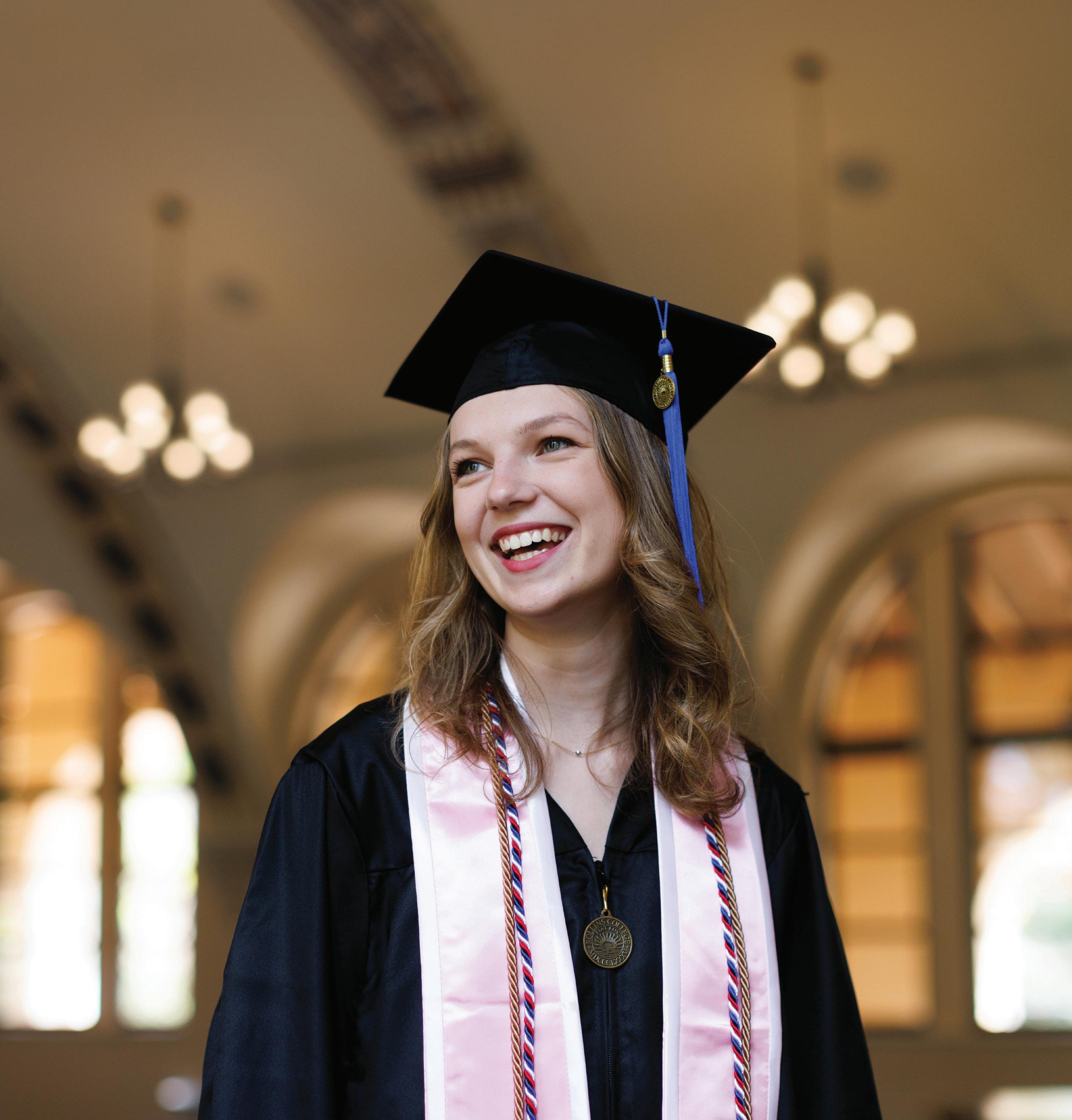
Hayley Stoddard ’24 discovered her true calling at Rollins, where she majored in international business and double-minored in data analytics and French. Her time at Rollins was shaped by deep connections with professors who ignited her passion for statistics and supported her growth into the leader and person she is today. Stoddard sharpened her skills abroad, mastering analytics, coding, and fluency in French. Back in Orlando, the heart of theme park entertainment, she secured a coveted internship at Universal Orlando as a travel industry sales intern and is now working as a CRM analyst with Travel + Leisure Co., blending her passions for data analysis and hospitality into an exciting career.
Visit rollins.college/giving to see how your gifts to the Rollins Annual Fund give students like Hayley the ability to say yes to every opportunity.
Rollins magazine
Email: rollins360@rollins.edu
Phone: 407-691-1361
Write: 1000 Holt Ave. – 2729
Winter Park, FL 32789-4409
Web: rollins.edu/magazine; click on “Talk to Us”
Office of Alumni Engagement
Email: alumni@rollins.edu
Phone: 407-646-2266
Write: 1000 Holt Ave. – 2736 Winter Park, FL 32789-4409
Web: rollins.edu/alumnisupporters
Giving to Rollins
Email: giving@rollins.edu
Phone: 407-646-2221
Write: 1000 Holt Ave. – 2750 Winter Park, FL 32789-4409
Web: rollins.edu/giving
Editor-in-Chief
Audrey St. Clair ’03
Associate Creative Director
Ashley Willsey
Assistant Creative Director
Sarah Bodman
Assistant Editor
Jessica Firpi ’11
Contributors
Laura J. Cole ’04 ’08 MLS
Scott Cook ’24 MBA
Adrienne Egolf
Rob Humphreys ’16 MBA
Alex Stiner
Zach Stovall
Assistant Vice President of Marketing
Luke Woodling ’17MBA
Produced by the Office of Marketing
All ideas expressed in Rollins magazine are those of the authors or the editors and do not necessarily reflect the official position of the College. Letters to the editor are welcome and will be considered for publication in the magazine. Rollins magazine is published twice a year by Rollins College for alumni and friends of the College.
Postmaster
Send address changes to: Rollins College
1000 Holt Ave. – 2747
Winter Park, FL 32789-4409
Visit Rollins magazine online at: rollins.edu/magazine
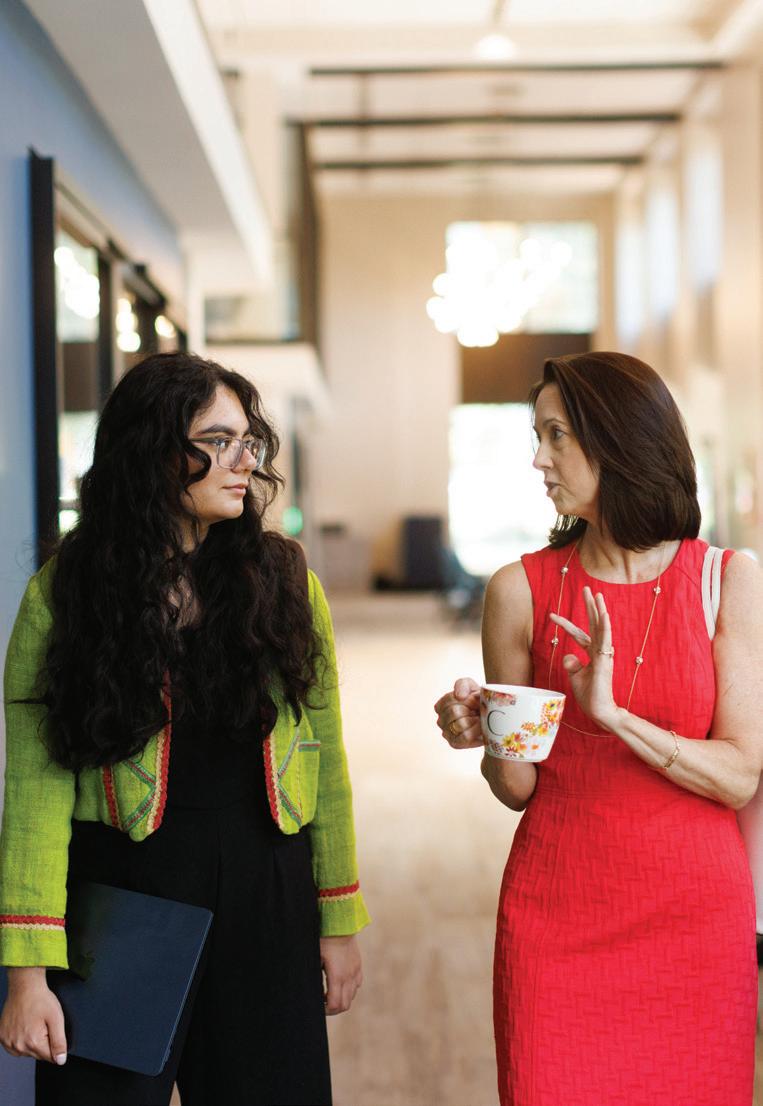




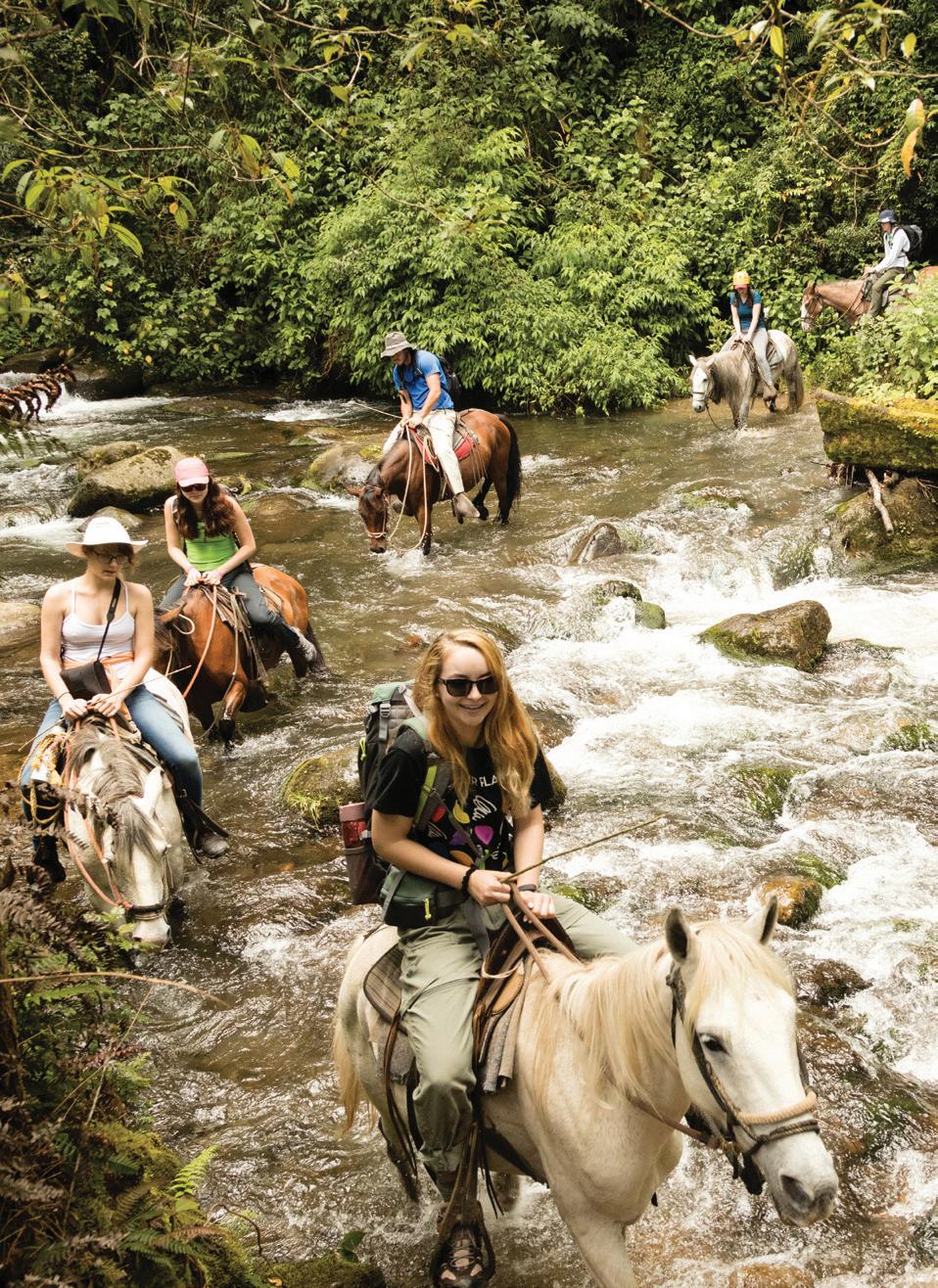
At Rollins, I gained an international perspective, got to choose a unique major in social entrepreneurship, and had the opportunity to compete at a high level on the golf team, which helped me hone skills in leadership and teamwork.
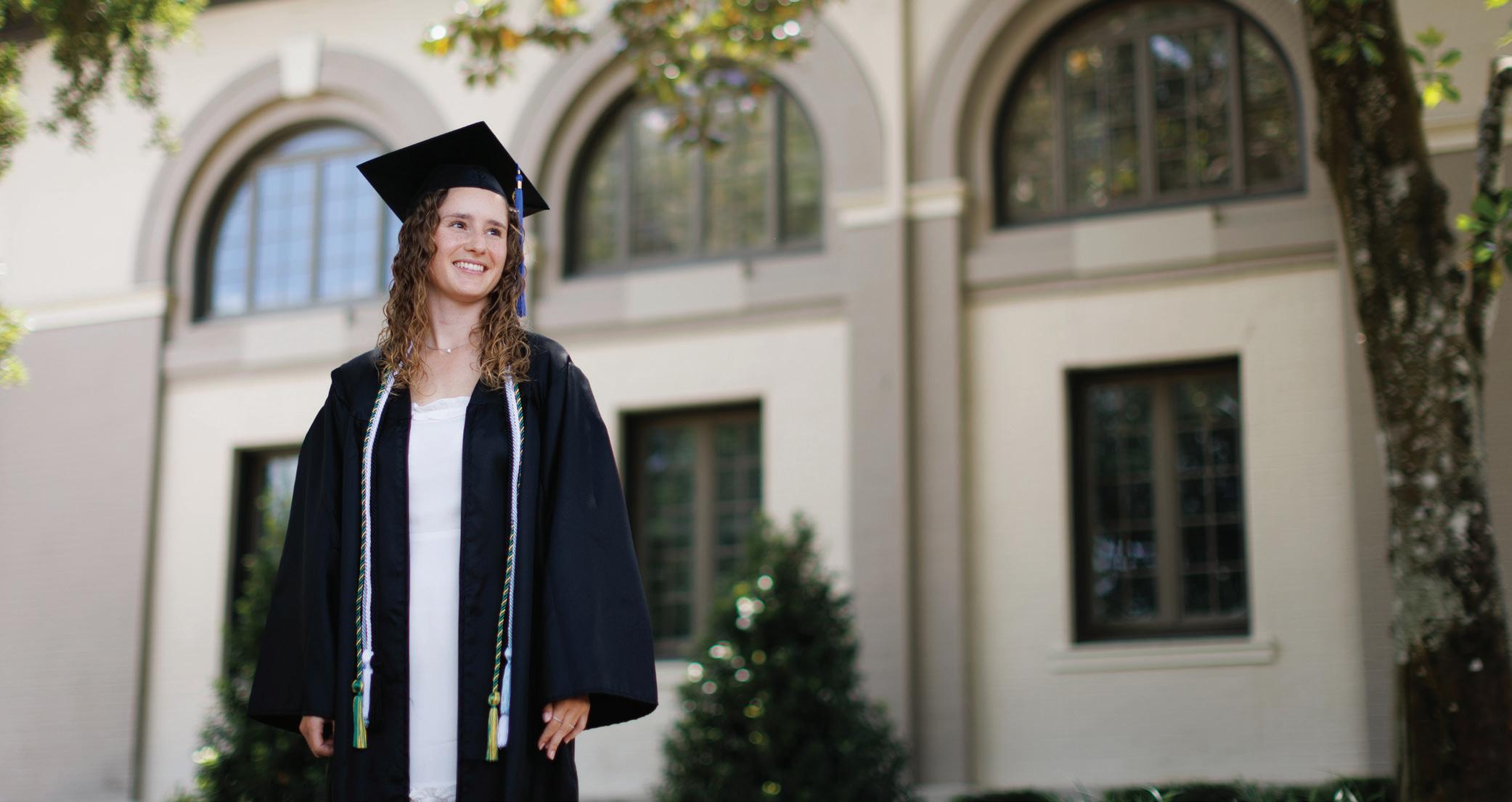
Olivia Tamburlini ’24, a Class of 2024 valedictorian, chose Rollins for its outstanding academics and first-class golf program, excelling in both as a member of multiple honor societies and earning recognition as a three-time All-American Scholar by the Women’s Golf Coaches Association. In between tournaments, she participated in internships, competed in—and won— the 2023 Ideas for Good pitch competition, and conducted original research alongside business professor Marc Sardy. Since graduating last May, she’s already tackled an internship in strategic venture building at Accenture in Berlin and secured a coveted spot in Bain’s prestigious Power of 4 gap-year program—a powerhouse rotation featuring internships at Bain & Company, T-Mobile, Procter & Gamble, and FC Bayern Munich.
The Wall Street Journal recently recognized Rollins as one of the top colleges in the nation and No. 52 out of 500 schools for best student experience.
Rollins has been ranked the top private institution and No. 2 overall among regional universities in the South by U.S. News & World Report. For more than 25 consecutive years, Rollins has ranked among the top two regional universities in the South and the top-ranked Florida school in the category.
Rollins’ Crummer Graduate School of Business has earned a spot on the global LinkedIn Top 100 Best Business Schools to Grow Your Career.
The Princeton Review named Rollins one of the nation’s best colleges and among the top 25 in the following categories: best health services, best classroom experience, best student support and counseling services, highest involvement in intramural sports, and most beautiful campus.
Alexandria Cohen ’25 and Joseph Pool ’26 were selected as 2024-25 Ginsburg Fellows, a scholarship and mentoring program for students passionate about social justice.
The Hamilton Holt School has earned recognition as one of the best schools in the country for adult learners.
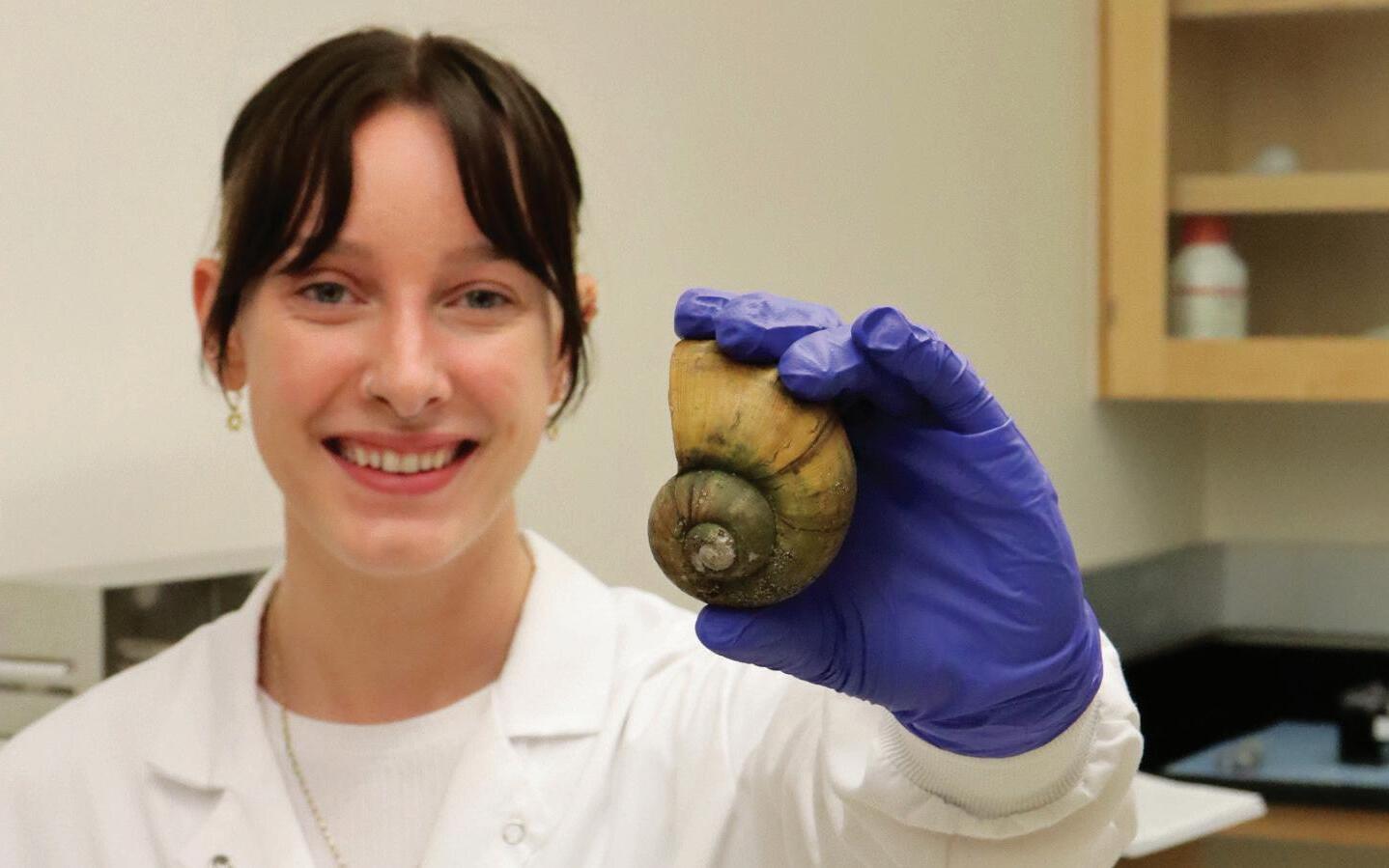
Small class sizes and close interaction with professors at Rollins have given me the opportunity to develop my criticalthinking and analysis skills, which have been helpful in my ability to engage in meaningful research.”
Hailey Manitz ’25, an environmental studies major who teamed up with biology professor Pamela Brannock to study Florida apple snails and the genetic consequences of introducing an organism to an area

Social entrepreneurship professor Tonia Warnecke has been elected vice president of the World Social Science Association (WSSA), an organization established in 1958 as an interdisciplinary group of social-science researchers, teachers, and practitioners from across the globe.

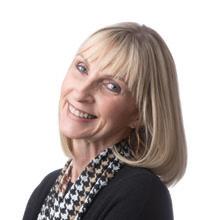

Dorrell Briscoe, Rollins’ new dean of religious and spiritual life, has secured $30,000 in grant funding for new programming to support interfaith engagement on campus.
Pennie Parker, Rollins’ associate vice president of athletics, has been appointed as vice president of the National Association of Collegiate Directors of Athletics (NACDA) executive board.
Greenhouse manager Zari St. Jean earned a travel grant to attend and present at the annual Association of Education and Research Greenhouse Curators (AERGC) conference.
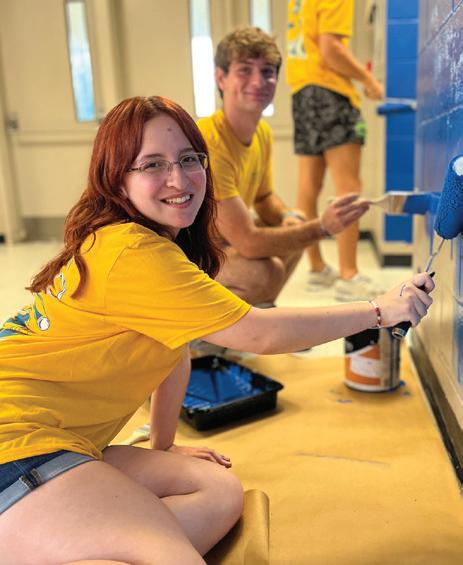
15%
The discount given to alumni on the best available room rate at The Alfond Inn, which is consistently rated one of Florida’s best hotels
850+
The number of Tars who turned out for Rollins’ annual SPARC Day to participate in a range of service projects supporting 32 local nonprofits

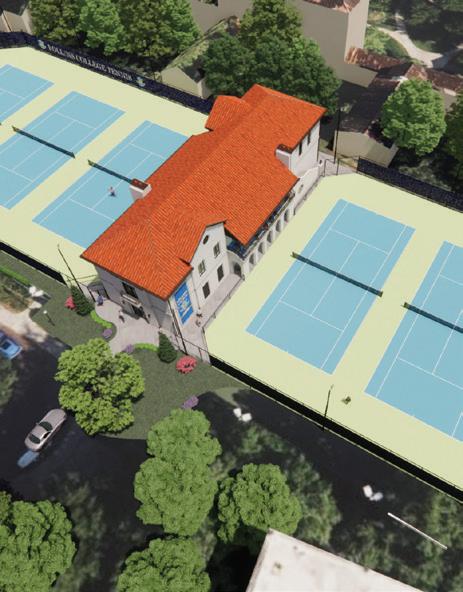
260
How many studentathletes made the Sunshine State Conference Spring 2024 Commissioner’s Honor Roll, marking a 9 percent increase from last year
9,961
The square footage of the new Tennis & Golf Center, a stateof-the-art athletic facility that will house men’s and women’s tennis as well as the men’s and women’s golf teams

By Joseph Pool ’26, as told to Jessica Firpi ’11 |
Photo by Zach Stovall

Fueled by his love of food and intercultural exchange, Joseph Pool ’26 founded Breaking Bread, a Rollins student organization that builds community and bridges divides through shared meals and conversation.
With more than 100 student organizations at Rollins, there’s something for everyone—but if students still don’t find their fit, they can always start their own club that speaks directly to their passions. Just ask public policy and political economy major Joseph Pool ’26, who discovered the power of culinary diplomacy in a student-faculty research project with religion professor Yudit Greenberg. The experience nurtured Pool’s love of food and culture and inspired him to found Breaking Bread, a student organization focused on building community and fostering dialogue through shared meals. The club has quickly become one of the fastestgrowing on campus, drawing over 100 members the week it launched. Pool shares firsthand what it’s been like to start his own student organization and how it has become a defining waypoint on his Rollins journey.
My first year at Rollins, I took two courses with religion professor Yudit Greenberg—Food and Religion and Food and Dining in Antiquity—which gave me a lot of academic insight into the importance of food. I was so inspired by these courses that during summer 2023, I worked with Professor Greenberg on collaborative research to explore culinary diplomacy—how food, and specifically shared meals, can be used to bridge interreligious and intercultural divides. Our research showed that throughout history, food has been essential in creating everything from peace deals to cultural exchange to economic partnerships.
Spurred by positive research results and armed with new knowledge, I wanted to put this culinary diplomacy into practice at Rollins. Because the College is so committed to personal attention and to giving students opportunities to
We all want similar things, and one of the most important is connection.
— Joseph Pool ’26 Founder, Breaking Bread

explore different interests, starting a student organization is a really easy process. Through the Center for Campus Involvement—an entire office dedicated to helping students find their fit—I was connected with the right people and resources to bring my idea to life.
We launched Breaking Bread in August 2023 and quickly realized how popular and powerful the meetings were. This year, the club has doubled in active members, and the first Eat and Greet event was attended by nearly 80 students. Many were people not involved in other student organizations or who didn’t typically attend evening programming. Sharing a meal with strangers inspired conversation, and soon people started to exchange contact info. I’ve since seen them getting lunch together on campus or grabbing coffee on Park Avenue. Food became an avenue for connection and a referee of debate.
Since its founding, Breaking Bread has partnered with administration and campus departments like the Office of Religious & Spiritual Life and the Center for Inclusion & Belonging—both of which have secured grants to use our shared meals to facilitate meaningful conversations. Additionally, as a Ginsburg Fellow, I’ve been awarded funding and mentorship to expand Breaking Bread beyond a typical student organization into a tool for connection in the wider community.
After Rollins, I want to study law and public policy and pursue a career in food policy. Leading my own student organization has given me the skills to bring people with divergent views together and has helped me realize that people are far more similar than different, regardless of religious belief, cultural background, or political affiliation. We all want similar things, and one of the most important is connection.
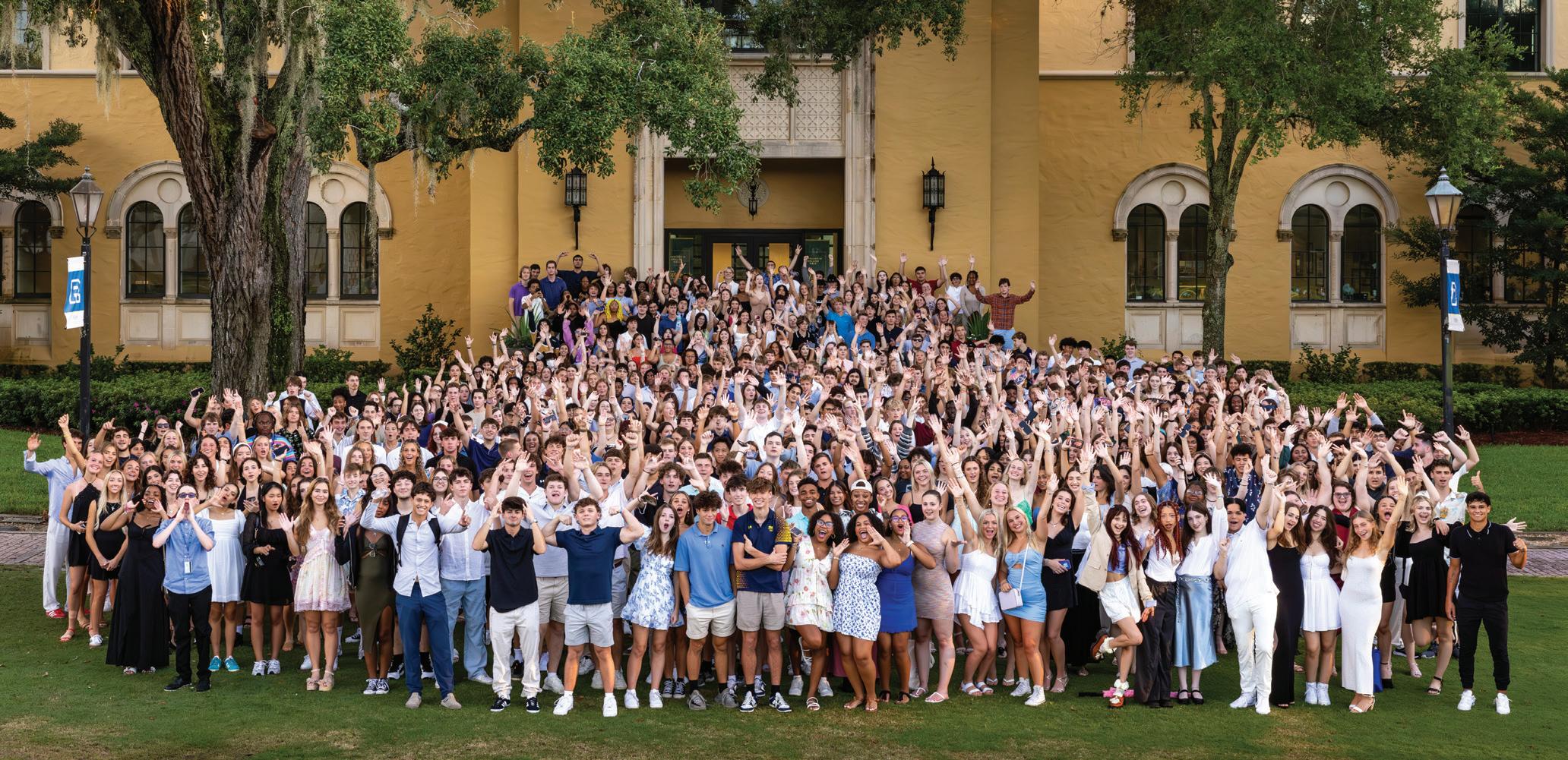
Rollins celebrated the start of the fall 2024 semester by welcoming 670 first-year and transfer students to campus. The newest Tars hail from 35 states and 29 different countries, including Vietnam, Italy, and Honduras.

At the end of Welcome Week, first-year students gathered for Candlewish, one of Rollins’ most cherished traditions. Each student received a candle to symbolize the strength of community and the pursuit of knowledge.
Family Weekend welcomed parents and families of our students to campus for a variety of fun programs and activities—from sporting events and museum exhibitions to service projects with Habitat for Humanity and tours of the new Tiedtke Theatre & Dance Centre.

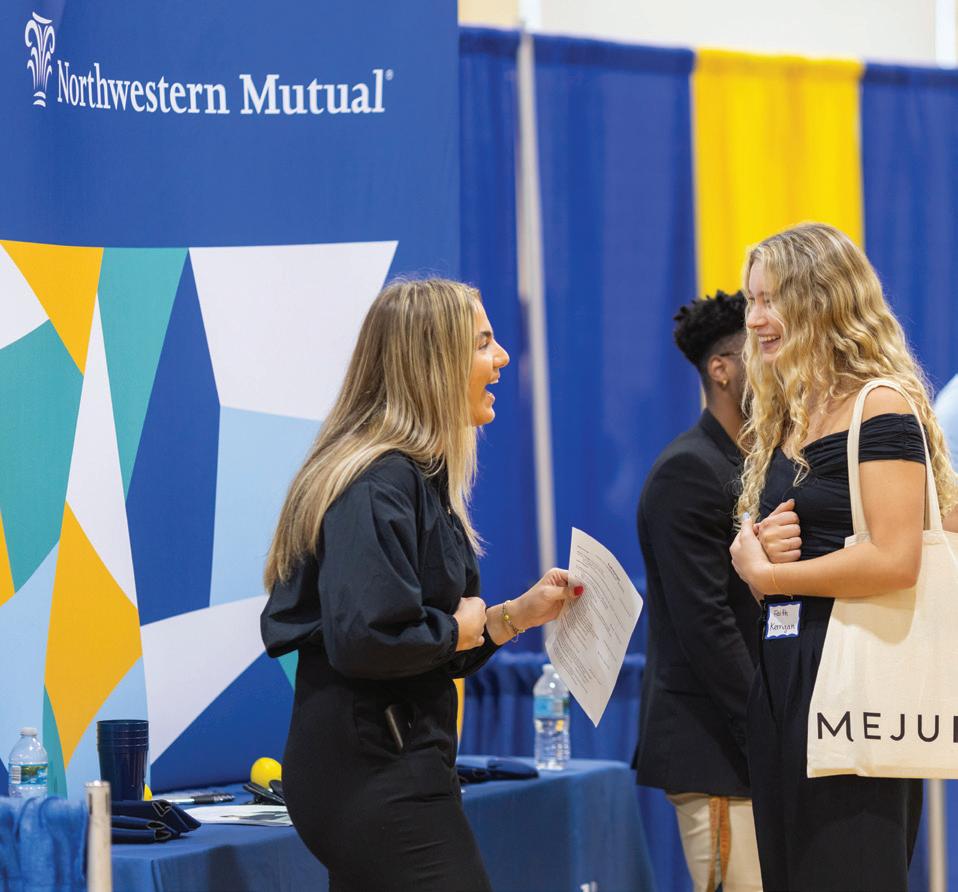
The Center for Career & Life Planning hosted a Career & Internship Expo in the Alfond Sports Center, welcoming dozens of employers to campus for students to broaden their professional networks.
The state-of-the-art costume shop at the new Tiedtke Theatre & Dance Centre is buzzing with creativity as theatre students put the final touches on costumes for Pride & Prejudice, the second show of the 2024-25 season at the Annie Russell Theatre.
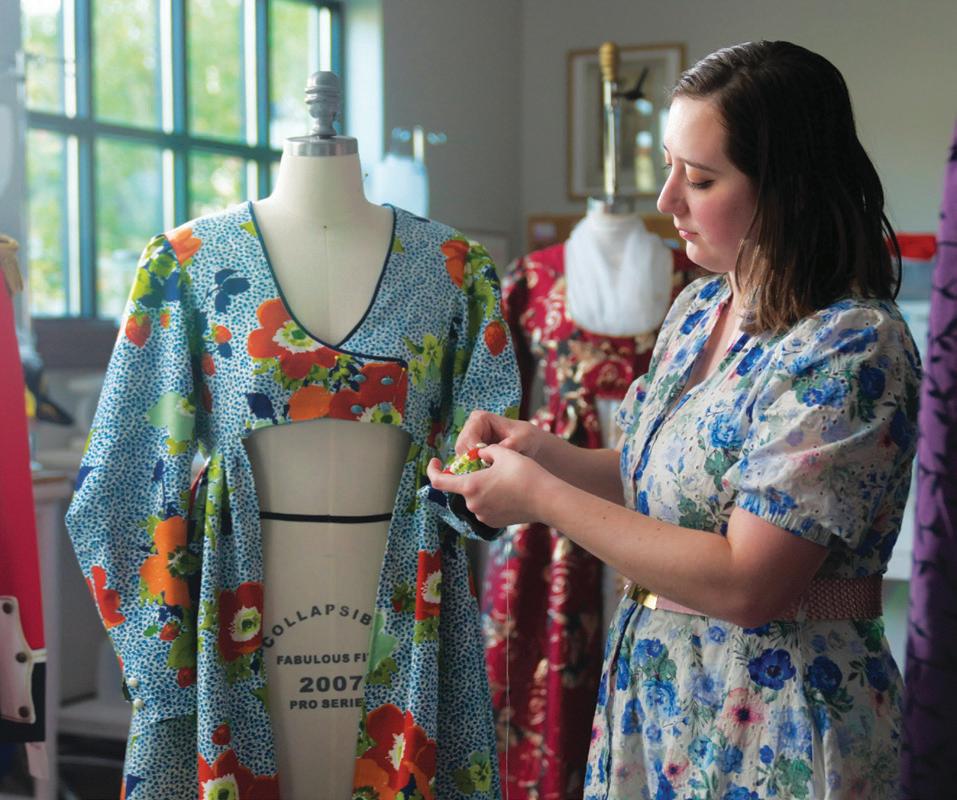
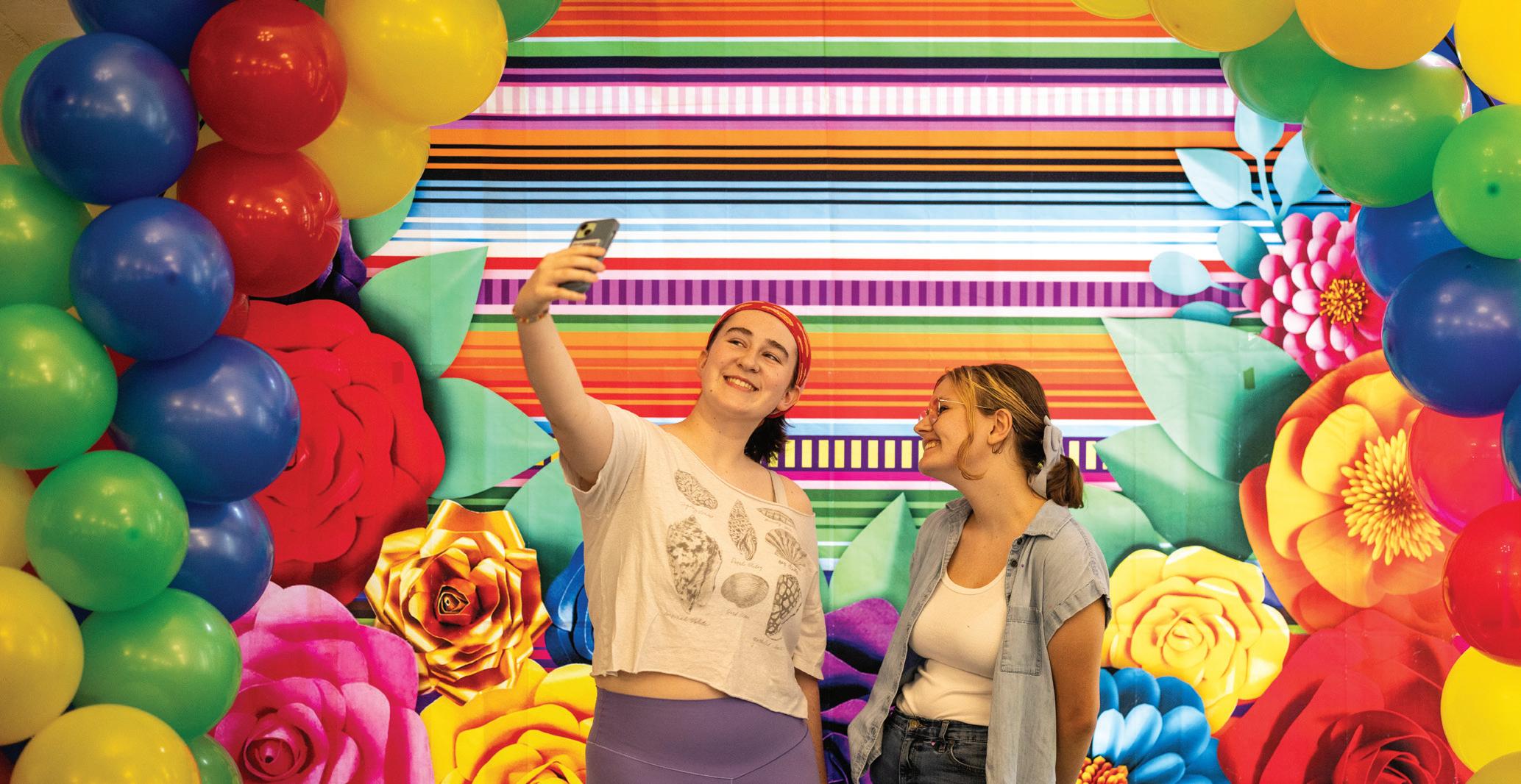
by hosting Fiesta Hispana, a lively mix of music, refreshments, and games in the Rice Family Pavilion.
The Social Impact Hub provides hands-on opportunities for students to tackle the world’s biggest social and environmental challenges.
By Jessica Firpi ’11 | Photo by Zach Stovall
At the center of campus in Kathleen W. Rollins Hall is a space designed for ideation and collaboration, where the next generation of changemakers, innovators, and entrepreneurs use humancentered design thinking to identify problems, devise solutions, and access the tools and resources they need to take action on everything from sustainability issues to human rights.
“We teach our students to act on these important issues,” says Melissa Nelson, staff director of the Social Impact Hub, “because while education is crucial, we want all of our campus community to feel empowered to actually do something to make the world better.”
Just ask students like social entrepreneurship major Nikki HallElser ’18, who spearheaded the development of a portable upcycled battery as a source of renewable energy. Or environmental studies major Aida Rico-Arango ’22, who founded BYOC Refillery to make it easier for people to reduce the amount of plastic they’re using. Or communication major Karie Yanez ’26, who has marketed the hub and its range of programs since her first year at Rollins.
“The hands-on learning approach at the Social Impact Hub gives students the skills and experiences necessary to tackle real-world issues effectively,” says Yanez, who helped organize the most recent Rethinking Fashion show.
By producing projects like Rethinking Fashion, Earth Day, and Changemaker Day, students don’t just learn about theory—they actively participate in developing and implementing solutions.
“Being in such a collaborative environment has pushed me out of my comfort zone and helped me become an active advocate for the causes I’m passionate about,” says Yanez. “The hub helped me find my voice and gave me the power to use it. I know that postgraduation I’ll be an effective changemaker in my own unique way.”
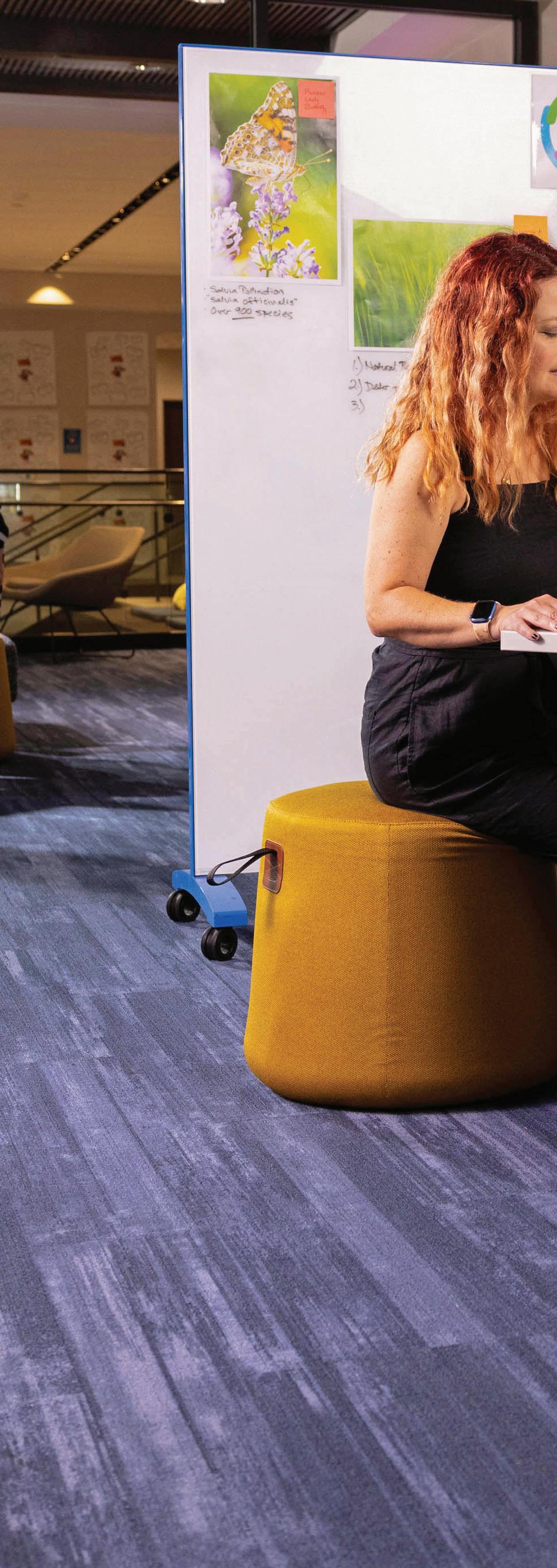

Every January, Changemaker Day transforms campus into a hive of action, where students and community partners collaborate to tackle global issues. Nonprofits like Active Minds promote mental wellness and share resources while organizations like the Central Florida Zoo bring animals to campus to raise awareness about conservation and environmental responsibility.

Rollins is now a part of Bee Campus USA, a program that recognizes, supports, and encourages pollinator conservation on college campuses. Located behind Elizabeth Hall near the urban farm, the pollinator garden is a thriving habitat of native plants that bloom throughout the year and provide continual food sources and shelter for pollinators like butterflies, bees, and bats. The garden serves as a living lab for students, faculty, and community members to engage in research and learning opportunities related to ecology, botany, and environmental sciences.
The Design Lab serves as the Social Impact Hub’s epicenter, a physical space where students, staff, faculty, and community leaders unite to engage in innovation and active changemaking. The latest endeavor? A cutting-edge hydroponic tower to grow produce indoors, which will help supply our campus food pantry.

Each spring, the Rethinking Fashion show brings together local and national brands in the beauty, fashion, and home-goods spaces to showcase ethical and sustainable designs. Hundreds of attendees view the pieces modeled by 50 to 75 faculty, staff, and students, creating awareness about eco-friendly materials, Fair Trade practices, and ethical production.
By Rob Humphreys ’16MBA | Photo by Zach Stovall
On a personal and professional level, the new dean of Rollins’ Hamilton Holt School knows how the grit and resilience of adult learners can produce life-changing results.
The path to a more promising future often begins with stepping back onto campus. It’s a lesson Lauren Smith learned firsthand when her mother, raising three girls in a small town, committed to finishing her degree at North Carolina Wesleyan University.
Now, four decades later, Smith is helping others navigate that same journey, giving a new generation of adult learners the tools they need to achieve a better life—for them and their families.
“Once someone has gone to college,” she says, reflecting on her mom’s influence, “their children have more pathways open to them.”
Hired in June as the new dean of Rollins’ Hamilton Holt School, Smith spent the past 11 years as director of adult learning at the University of Wisconsin-Whitewater’s (UW-W) School of Graduate Studies and Continuing Education. Prior to that, she chaired the women’s and gender studies department at UW-W after beginning her career as an English professor at Eastern Illinois University, where she also chaired women’s studies.
Smith, who holds an MFA in creative writing and a PhD in English from the University of Iowa, has broad experience with both strategic planning and the execution of existing plans. At UW-W, she wrote a successful $330,000 Ascendium grant to establish a fund supporting low-income students facing financial emergencies. That, in turn, attracted multiple donor gifts to further expand the program’s reach.
Smith says her work with the emergency fund gave her a respect for the grit and resilience of adult learners—often those working many hours and finding creative ways to succeed.
Like other underrepresented groups, adult learners face challenges, including work and family commitments outside of education. Smith emphasizes the need to provide targeted support for these students as they navigate everything from the application process and financial aid to forging key relationships with faculty and staff.
As for her new role at the Holt School, which administers Rollins’ Professional Advancement undergraduate degree programs and seven master’s programs, Smith appreciates coming into an environment that promotes a healthy mix of in-person and remote learning. The hybrid approach provides adult learners with much-needed flexibility while fostering essential one-onone connections with classmates and faculty members.
“The focus on personalized learning is one of the features of a Rollins education that’s really special,” adds Smith, emphasizing how she’s always drawn energy from vibrant groups of students coming together to learn.
“It’s exciting for me to spearhead the Holt School’s continued growth in adult learning,” she says. “Not only that, but there’s an ongoing need for creative outreach to employers and potential students.”
Smith points to programs in education, counseling, applied behavioral analysis, communication, and health care as among the many excellent opportunities the Holt School has to serve the community. She’s inspired by Holt’s Pathways to Teaching initiative—which is helping address Florida’s teacher shortage by providing local elementary school employees with the resources they need to earn education degrees and certification—and would like to emulate its success in other disciplines.
Stackable degree tracks are another potential focus area, offering flexibility in learning by allowing students to earn smaller, focused credentials that can be accumulated over time toward a larger degree.
“My vision is of a school that embraces the mission of providing pathways for nontraditional students,” says Smith, “and works hard on student success at every level, retains students to the greatest extent possible, and remains committed to the liberal arts in relation to professional and career advancement.”
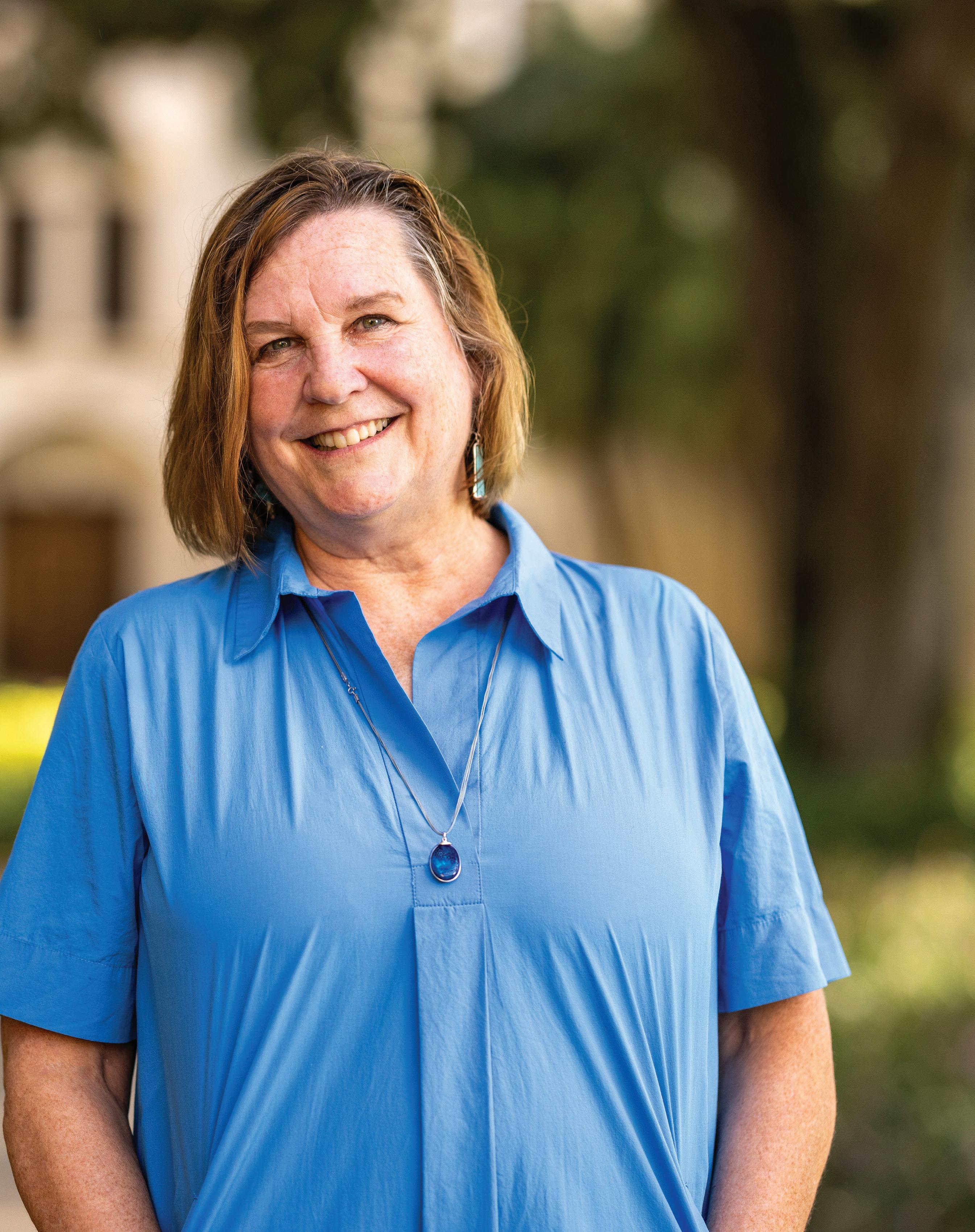
Smith shares the defining characteristics of today’s working adult learners and what they’re looking for as they return to college.
1. They are diverse. Beyond factors like age, race, previous education, and career status, many tend to be firstgeneration, lower-income students.
2. They want a better quality of life. Whether it’s changing careers or staying competitive in their current field, the adult learner is focused on career growth and advancement.
3. They need flexibility. These students are juggling multiple work and family priorities, so they need programs like ours that are designed specifically for working adults with busy lives.
4. They’re not coming in as blank slates. Most have taken at least a few college classes and have a handful of years in the workforce, so they are full of diverse life experiences.
5. They don’t always feel they belong on a college campus, and they’re worried about their ability to finish college once they return. That’s why it’s so important to offer them a personalized experience and supportive community that’s committed to their success.

Rollins is responding to the academic, social, and mental health needs of this generation of students, setting them up to flourish in college and beyond.
Before August had rolled around, before moving into her dorm, and before walking into her first class of her first fall semester as a college student, Ciara Bibbs ’27 had already spent a month living on campus. She had been introduced to resources to help her succeed, completed two courses, and made critical connections.
“I had a group of friends, faculty members who knew me, and six credits under my belt before the academic year even began,” says Bibbs, a political science major and African and African American studies minor. “It really gave me the confidence starting off my first semester that I could do this. It was definitely a huge advantage."
Bibbs was one of 11 students in Rollins’ inaugural RISE program, which is designed to better prepare first-generation and underrepresented students, primarily from Florida, for success in college and beyond. It’s part of a slate of new programs Rollins has launched to best support today’s college students and give them the tools they need to be successful.
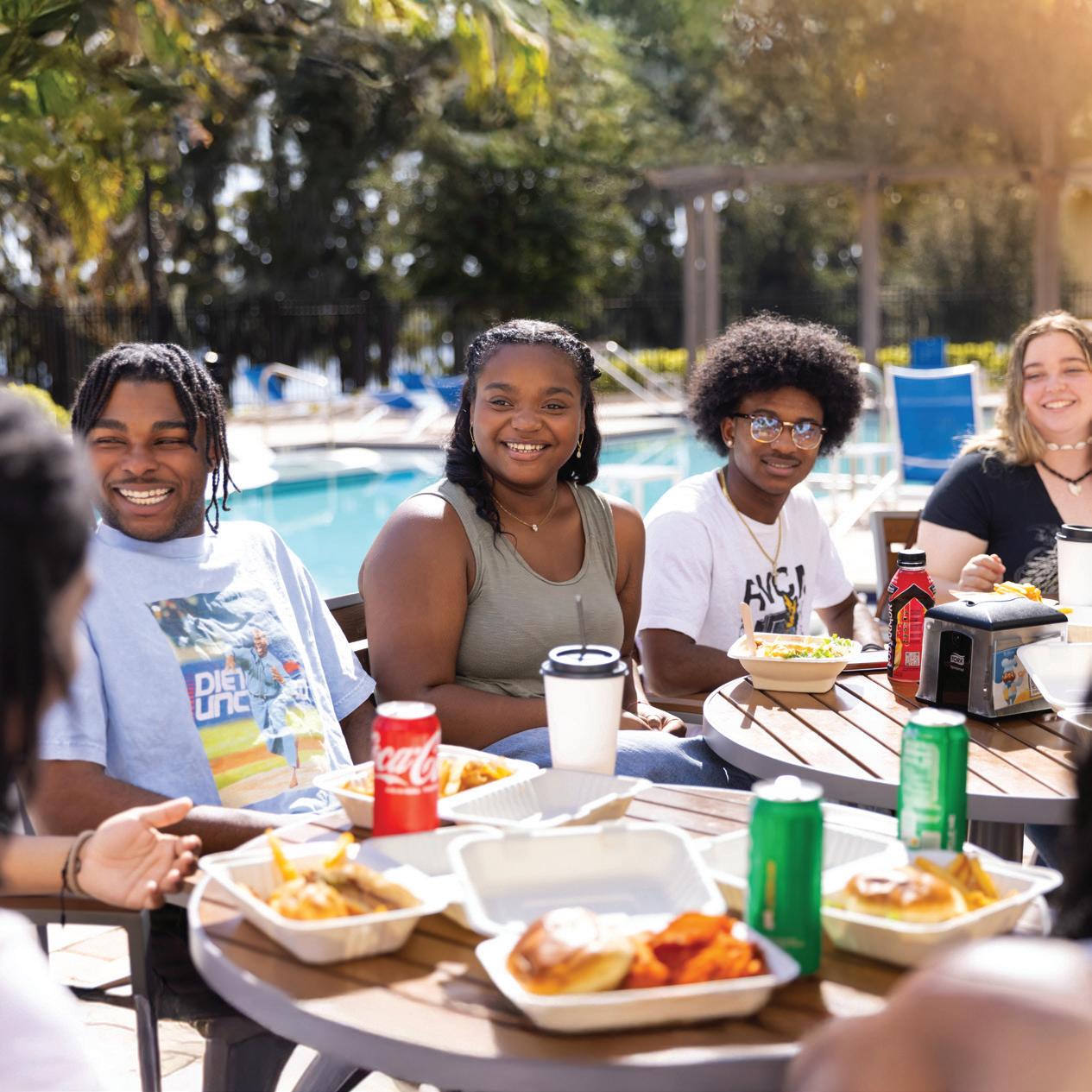
“All of these factors are causing us to think about who our students are and how we can best meet them where they are,” shares Layne Porta, director of Rollins’ Tutoring and Writing Center.
Within Generation Z is a subset of students whose high school experience was significantly impacted by COVID-19. Known as Generation Pandemic—or Gen P, for short—they are more likely to cite a lack of mental preparedness as a reason for opting out of college altogether. They also have larger gaps in their educational foundation, including less proficiency in studying, test-taking, reading, and writing, which has led to the largest drop in the average assessment scores ever recorded. This is exacerbated by a decline in overall mental well-being and socio-emotional development, resulting in challenges making meaningful connections with people offline. In fact, nearly 60 percent of students report challenges with anxiety, depression, and stress, according to the latest Healthy Minds Study.
In many ways, Rollins is well-positioned to address students’ needs. In the College’s signature personalized learning environment, with small class sizes and a low student-faculty ratio, it is easier for faculty to get to know students individually, notice when they are struggling, and connect them immediately with the right resources.
“That’s the benefit of being at a smaller school where they prioritize relationships,” says Bibbs. “Your professors really do know who you are. It’s a blessing.”
The College has been responding to the shifting demands of today’s students by rolling out new programs and resources to address students’ current concerns about feeling less prepared academically, mentally, and socially while continuing to monitor and respond to future needs.
Porta acknowledges that in general students don’t receive the credit they deserve for having navigated learning during the pandemic. That was a very real disruption that led to students starting college with less experience writing longer papers, using citation styles, and participating in group work.
To address those discrepancies, Rollins’ Tutoring and Writing Center implemented study halls, accountability groups, and academic-skills tutoring sessions, where students can get help with everything from how to read academic texts and format documents to best practices for studying and time management.
“We’re really trying to listen to our students, to the things they’re finding overwhelming or challenging, and implement whatever we can to make living and learning a little easier,” says Porta.
That can include knowing when and how to ask for help and how to understand what’s actually being asked of them. To better address these issues, Porta often leads workshops for students and faculty alike on various topics, including learning strategies.
“It gives me an opportunity to tell students that if you are meeting new challenges, it’s simply about putting in place a system that will work for you,” she says. “I really love any opportunities to tell students that not doing well on a quiz or a test doesn’t mean that you aren’t smart. It doesn’t mean you aren’t able to perform well in this class. It just means that your system hasn’t lined up with what you’re being asked to do.”
In addition to leading workshops for students as part of their foundational Rollins College Conference (RCC) classes, Porta has also facilitated workshops for faculty members during RCC Faculty Training Day, which takes place before the fall semester. In addition to that training, faculty have access to a range of workshops and lunch-and-learns throughout the year thanks to the Endeavor Foundation Center for Faculty Development, which supports faculty
in their work as teachers and teacher-scholars by sharing best practices on teaching based on the latest research.

Rollins’ faculty often go above and beyond to meet students where they are, focusing on their needs and taking the time to be better teachers. In fact, Rollins professors don’t just teach the value of being lifelong learners. They embody that practice themselves, recently garnering Rollins the distinction of No. 1 in the South for its commitment to teaching undergraduates by U.S. News & World Report
“Our amazing faculty are dedicated to guiding our students throughout every step of their academic pursuits through individual mentoring, academic advising, and collaborative research,” says Ashley Kistler, dean of the College of Liberal Arts. “These close connections forged between students and faculty are one of the hallmarks of a Rollins education and persist long after graduation.”
A student’s relationship with faculty often begins with the RCC course, where for 30 years first-year Tars have been paired with a faculty member who doubles as their academic advisor, serving critical roles in clarifying goals and developing plans to realize them.
Bibbs’ RCC course was College Uncovered, and Amy Armenia, director of institutional analytics and former professor of sociology, was her professor. Bibbs calls her “Dr. A.,” and together, they have forged the kind of

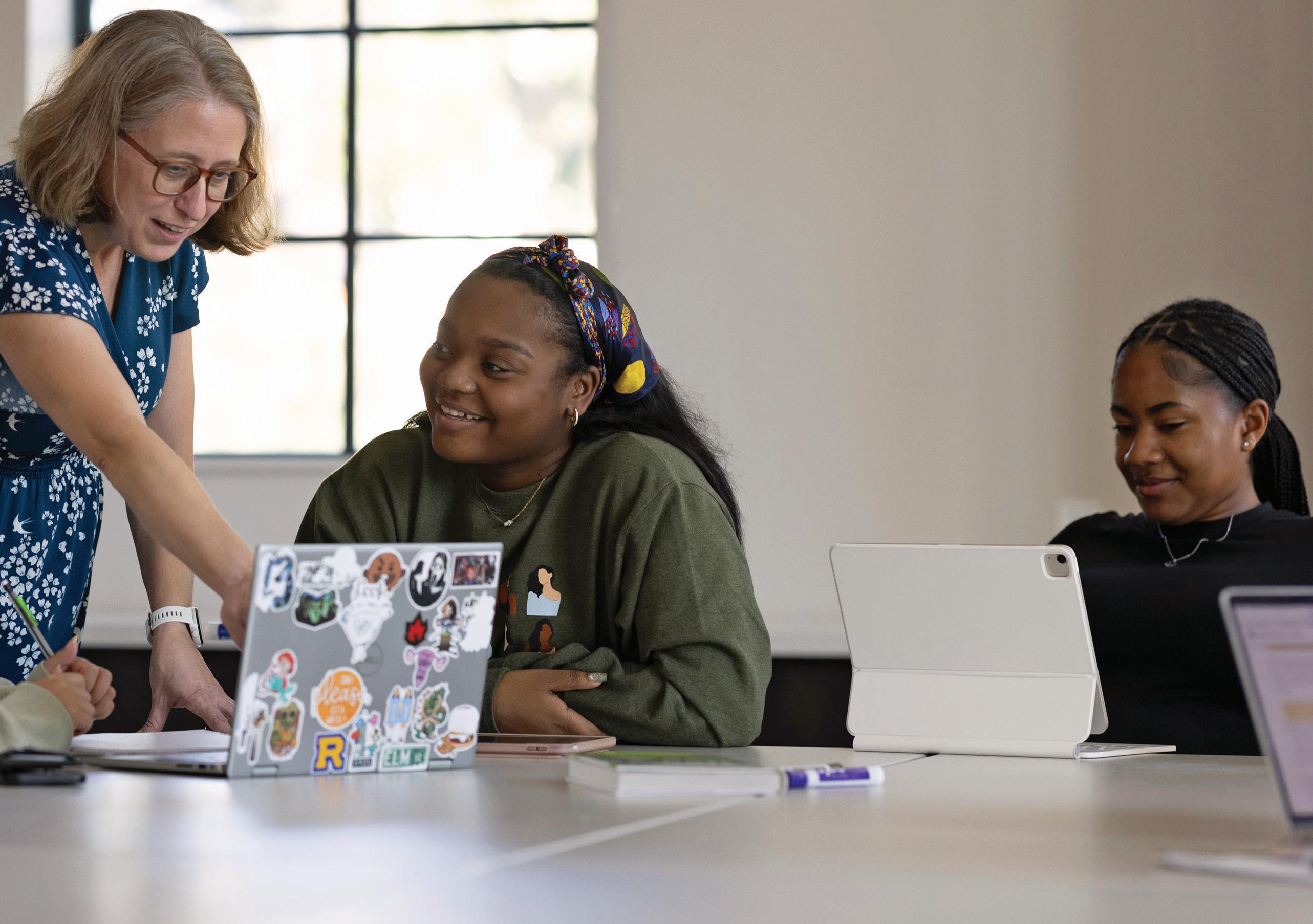
looks to her for support to keep going.
Bibbs admittedly has a lot on her plate. In addition to a full course load, she is president of the Black Student Union, a Bonner Leader who volunteers in the community, a part-time workstudy student in the Student Center for Inclusion & Belonging, and a peer mentor. She also helps take care of the aging grandparents who helped raise her. Some days, Bibbs admits, it feels like too much. On one of the harder days earlier this summer, she reached out to Armenia.
“Dr. A knows familywise what’s been going on these last couple of years,” says Bibbs. “I went to her and warned her: ‘I might try to come to you and say that I want to leave. Don’t let me.’ She said, ‘I got you,’ and asked me to tell her what’s going on. So I sat and told her everything. We’ve built that understanding where I know she’s always there for me.”
The type of emotional support described by Bibbs is often critical for allowing students to navigate difficult events and stressful situations, and ultimately, succeed. There are also times when students need more structured support from professionals trained to provide just that.
The most recent National College Health Association’s assessment report—which surveyed nearly 80,000 undergraduate students across 154 institutions—found that
procrastination, stress, and anxiety are the top impediments identified by students as impacting their academic performance. Connie Briscoe, executive director of campus health and wellness at Rollins, is seeing that play out firsthand in the Wellness Center.
“Nearly 70 percent of our students say their mental health is impacting their academics pretty dramatically,” she says. “We’ve seen an increase in generalized and social anxieties.”
When the pandemic hit, Rollins immediately responded to offer additional resources to students who needed help coping. The Wellness Center hired an additional nurse practitioner to address both physical-health services and mental-health concerns. Rollins doubled the number of part-time counselors and made a conscious effort to ensure new hires better represented the different ethnic and racial backgrounds, languages, genders, ages, and LGBTQIA+ identities of the students they were serving. They brought on a sports psychologist for student-athletes. And they added a slew of additional free resources, such as the 24/7 Rollins Mental Health Helplines.

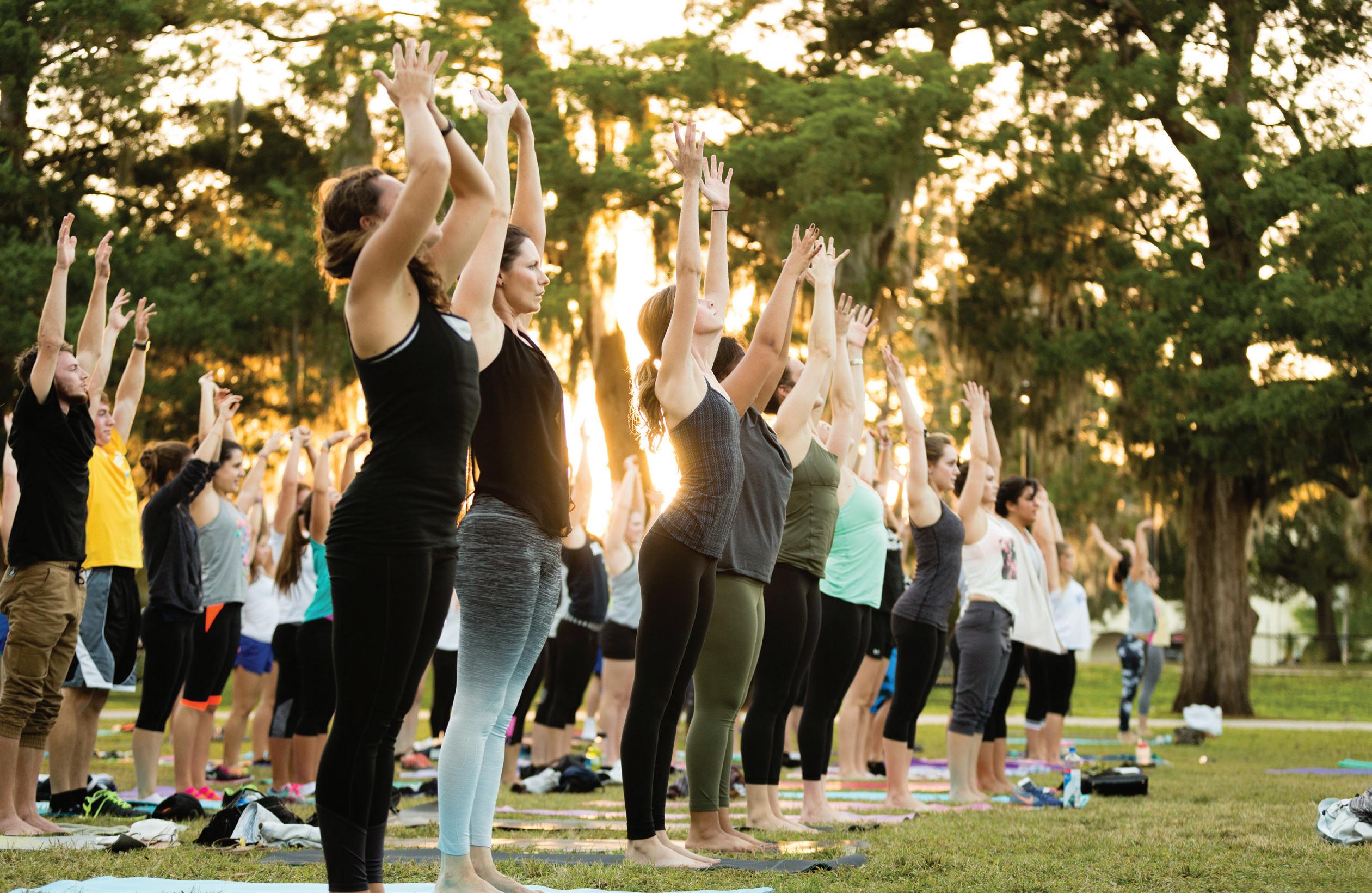

“Utilization of Wellness Center services has continued to skyrocket,” says Briscoe. “It’s not just 2020 and 2021. We’re still seeing the lingering impact of the pandemic. In the last year alone, for example, we’ve seen more than a 100 percent increase in the number of students utilizing our crisis appointments over the previous year.”
For that reason, the Wellness Integration Team, which is a group of staff and faculty led by Briscoe that formed to meet every week during COVID-19, never disbanded. Instead, they opted to continue meeting and shifted their focus from responding to COVID to rethinking how to better embed mental health and holistic well-being throughout the campus community.
One of the results is partnering with the Endeavor Foundation Center for Faculty Development to provide support and education to faculty, so they know how best to support struggling students both
in and outside the classroom. They’ve also begun partnering with parents to teach them about resiliency. And for the past two years, they’ve offered comprehensive training for all peer leaders.
“We know that this is a generation who learns best from each other, their peers, and who often turn to them even more often than they do to us,” says Briscoe.
From helping each other navigate all the demands of college to becoming lifelong friends, students play a big role in contributing to each other’s sense of belonging, which Rollins’ own research has found is the top reason students stay—or leave.
“In the surveys we’ve done since I’ve started at Rollins, we found that having a sense of connection on campus is the second-most popular reason why students
stay at Rollins,” says Michelle Perez, the College's executive director of retention and student success. “Not having that connection, however, has become the No. 1 reason students cite for leaving.”
In addition to RCC courses, Rollins has focused on offering a slew of programming from community engagement projects and pizza parties to themed residence halls designed to make it easier for students to bond with each other.
“In terms of engagement, Rollins really makes sure that we offer intentional programming for the first six weeks,” says Marjorie Trueblood, dean of the Student Center for Inclusion & Belonging. “In higher ed, that’s known as the red zone, where there’s a huge risk of students leaving.”
But it’s not always enough for the generation that has been dubbed the “Loneliest Generation,” with 73 percent of Gen Z reporting feeling lonely—more than any
other age group, including people aged 65 and over. Not all students feel comfortable attending events where they don’t know anyone, so Rollins asked the question: How can we make it easier for students to forge meaningful connections with other students?
One answer: Provide opportunities centered on shared experiences and identities prior to the first semester. For example, the new Neuro Navigators program provides neurodiverse students with the chance to learn more about themselves and others with similar experiences and learning styles. EMBARK connects students of underrepresented backgrounds with opportunities to explore their identities, make friends, find mentors, and participate in everything from discussions to service trips. And the RISE program builds on that by allowing students the chance to gain confidence in earning academic credits at the collegiate level.


For Bibbs, RISE allowed her to find an extended family on campus. This past summer, she served as a peer mentor for the newest class of RISE students, who she calls her Care Bears. They, in turn, have dubbed her “Mama C.”
When we spoke via Zoom on the day Hurricane Helene passed through Florida, she was wearing a bracelet with that nickname, making a batch of homemade chili, and responding to texts in the RISE group chat about when everyone could start coming to her apartment, where she lives with three other students who went through EMBARK and RISE.
“These programs gave me the opportunity to meet people who are like me,” she says. “They gave me the opportunity to find friends, mingle, and be cool. Yes, I have my home base away from campus, but these students became my home base too.”
Every spring, the Student Center for Inclusion & Belonging holds an Ubuntu retreat, focused on allowing underrepresented students to explore their identities and learn skills to be more resilient. It’s called Ubuntu after the Bantu word that has become a philosophy. It means, “I am because we are.” For Trueblood, it points to our interconnectedness and how true success requires a collective effort to be curious about each other, so we can help each other get across the goal line.
In the same way, addressing the needs of today’s college students requires everyone in the Rollins community to be curious about how students’ needs are changing, working together to better meet students where they are and to provide the loving care and structured support they need to thrive.

From scholarships and financial aid to new programs and initiatives, learn more about how you can support Rollins students as they become the leaders of tomorrow. rollins.college/support
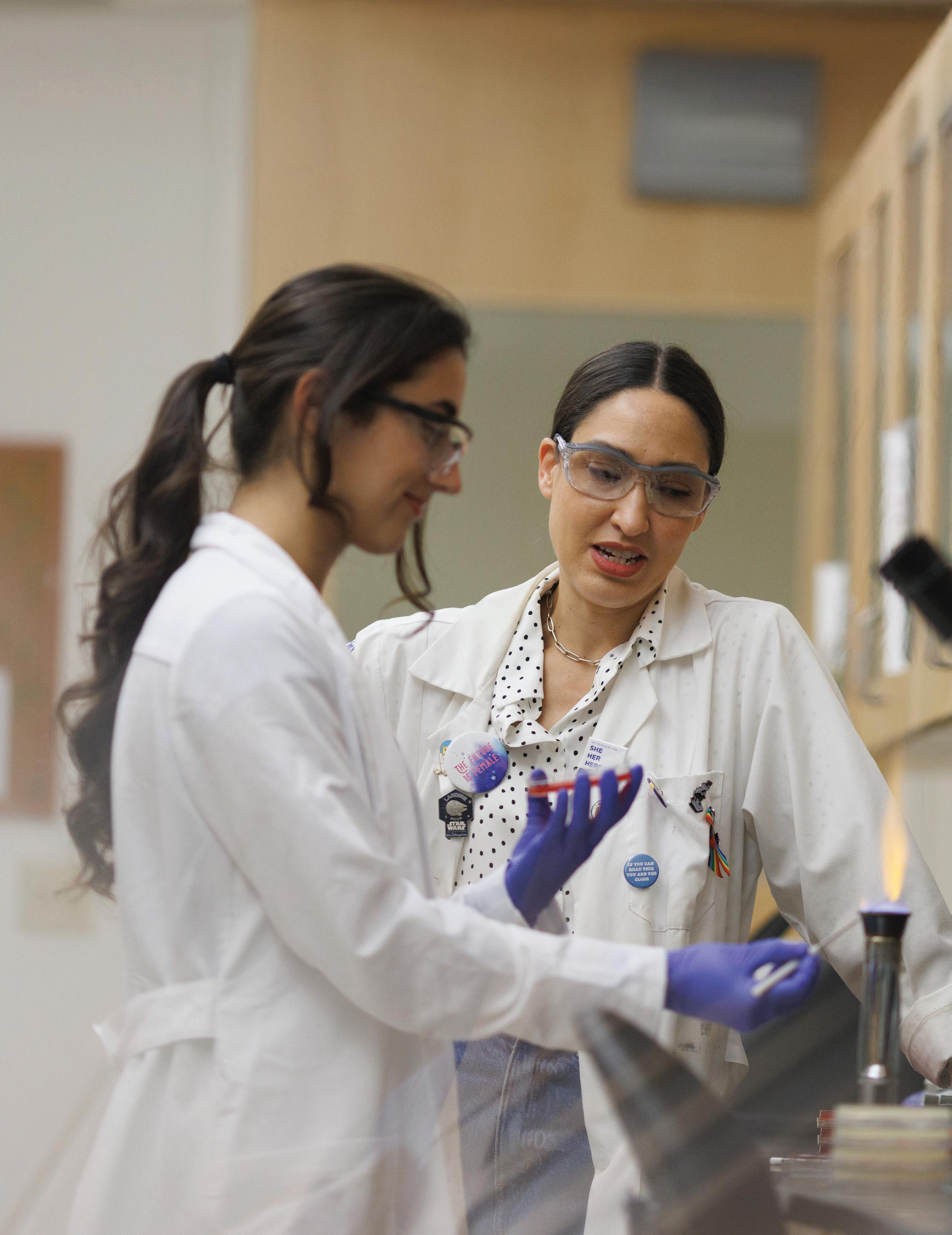
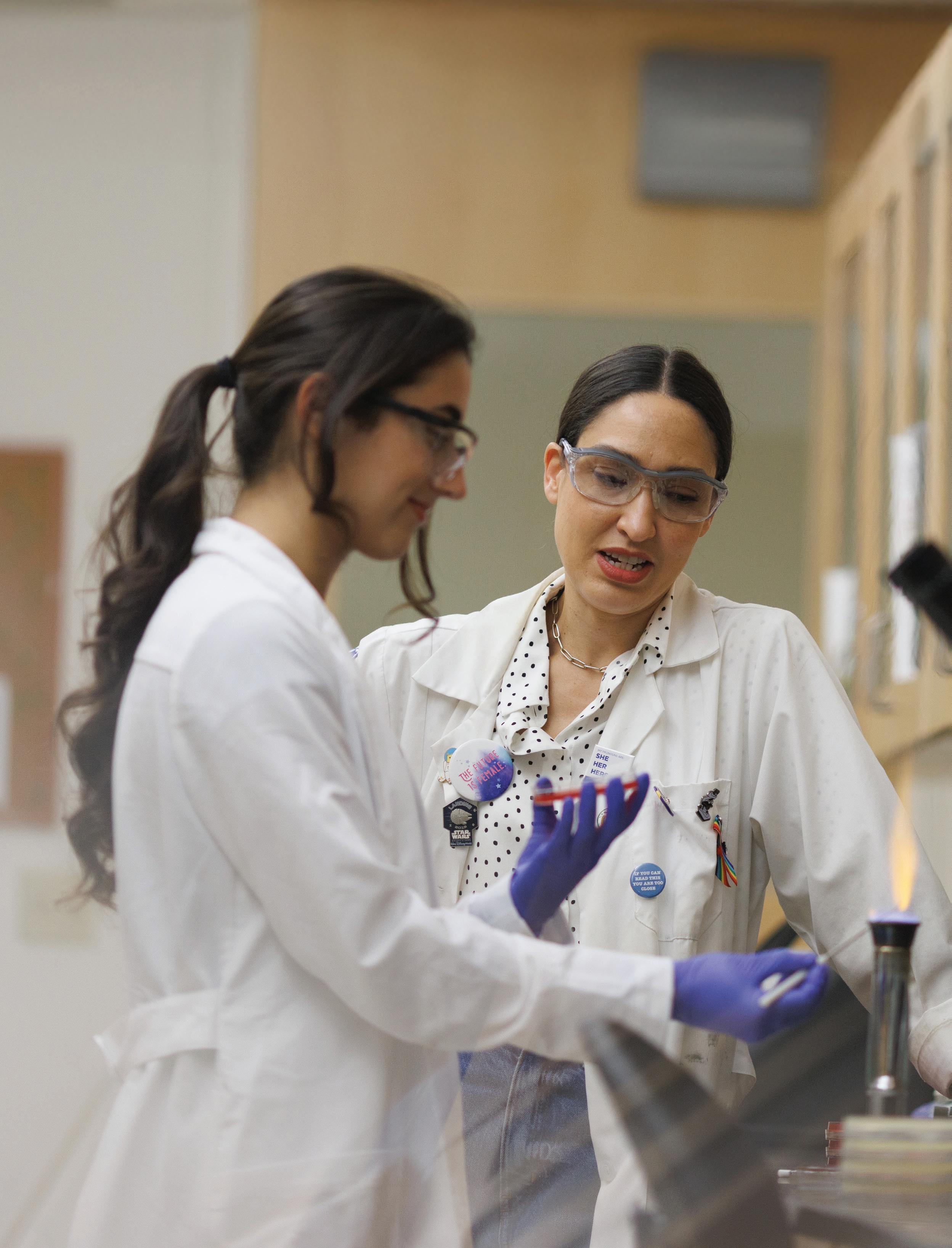
By Adrienne Egolf | Photo by Scott Cook ’24MBA
As a psychology student at Rollins, Kathy Redwine ’94 discovered her calling for helping people nurture and sustain their mental health.
Kathy Redwine ’94 was 19 years old when beloved alumnus Fred Rogers ’51 ’74H came to Rollins and delivered an address to students and faculty on Mills Lawn. The experience proved life-changing for her.
“I don’t know if everyone felt this way, but that day I felt like he was speaking directly to me,” says Redwine, a distinguished Licensed Professional Counselor (LPC) and play therapist. “That’s who I wanted to be—a person who represents kindness and love and support.”
So it is fitting that Redwine was chosen to receive Rollins’ 2024 Fred Rogers Global Citizenship Award, which recognizes prominent alumni who exemplify the College’s mission of global citizenship and responsible leadership through their extraordinary achievements and impact on society.
“It’s the biggest honor that I could imagine,” she says.
In hindsight, Redwine’s path—from misty-eyed student listening to Mr. Rogers on the lawn to an award-winning mental health professional—may seem like a forgone conclusion. But she came to Rollins without a clear idea of what psychology even was, let alone how she would pursue it as a career. After hearing Rogers speak, she just knew she wanted to help people, and she had an interest in public service and justice because of extracurricular activities in high school that had exposed her to model government. However, it was her years at Rollins that helped define her life’s work.
“I’d grown up in a bubble in Connecticut,” she says. “I think in my head I knew I wanted to help people but didn’t know what that looked like. At Rollins, it felt safe to explore things I didn’t know. And the professors were just so supportive of helping you learn. They genuinely wanted you to succeed.”
That nurturing and support led to another pivotal moment for Redwine. “Back then, you weren’t pushed to do internships the way students are now,” she remembers. “But I really wanted hands-on experience, so my professors encouraged me to pursue an independent study, which allowed me to work at Project Three, a drug and alcohol center for kids.”
The professional experience was critical for her career—but it was the broadening of her worldview that proved invaluable.
“That experience helped me feel comfortable in an environment that was unfamiliar to me,” she says, “and I don’t know that I would’ve felt that way without that experience.”
After graduating from Rollins, Redwine landed a position at The Relative, a homeless youth shelter for children and teens in Charlotte, North Carolina. She worked there for seven years, advocating for homelessness awareness and supporting youth outreach programs. It was a formative and at times overwhelming experience, but she was prepared for it because of Rollins.
Redwine went on to earn a master’s in clinical community counseling from the University of North Carolina at Charlotte and started a private practice. In this role, she continued filling gaps in the mental health resources available to children, founding local chapters of the nonprofit Girls on the Run and PFLAG, an organization dedicated to supporting the families of LGBTQIA+ young people.
These days, Redwine runs her practice and hosts a podcast from Pawley, South Carolina—an area, she explains, that is underserved in terms of mental health. With no psychiatrists in the area hospitals and very few psychologists, she serves a critical role in the community, helping children deal with all manner of mental health challenges.
“It’s an incredible honor and privilege to serve as an important person in children’s lives,” she says. “Seeing how resilient and strong so many kids are after coming through what they’ve come through just gives me so much passion to keep on doing what I’m doing.”
Reflecting on her accomplished career in the mental health space and the award that bears both her name and the name of her hero, Fred Rogers, Redwine is humble.
“From a young age, I just felt so deeply about things but didn’t quite know how to use that to my benefit,” she says. “I don’t feel like this is my job; it’s my calling. It’s what I’m meant to do. Rollins helped me get to a place where I could embrace that.”



“Above all else, the Bonner program taught me to be a critical and intersectional human throughout all my work regardless of the field. ”
Marissa Cobuzio ’19 | Army Veterinarian
By Jessica
For the past 10 years, the Bonner Leaders Program has provided service-learning opportunities to students passionate about social issues and nonprofit work, creating positive change in the Rollins community and beyond.
With a personal mission of “helping people by helping their animals,” there’s no doubt Marissa Cobuzio ’19 is committed to improving lives. As a veterinarian in the U.S. Army, she’s pursuing her passions centered on raising and training working dogs who serve soldiers or individuals with disabilities. It’s a noble pursuit that she fostered at Rollins as a member of the College’s Bonner Leaders Program—a four-year, cohortbased community service initiative that pairs students with local nonprofits.
Before graduating from Cornell University College of Veterinary Medicine in 2023 and joining the U.S. Army as a Veterinary Corps Officer, Cobuzio was a biology and sociology double major at Rollins—a people person with dreams of working with animals. She spent a year and a half raising a service dog named Ari for Canine Companions for Independence. She also worked with the
nonprofit to get Rollins approved as a service-dog-raising campus and developed alongside campus leadership the infrastructure needed to continue the program for future Rollins students.
“Through my proposals to the administration at Rollins on how this would be an opportunity for disability advocacy and to educate others about working dogs on campus,” says Cobuzio, “I learned so much more about these topics and about how to advocate for things I’m passionate about, especially when they provide the opportunity to help others.”
Ultimately, her Bonner Leader experience led to a shift in her career goals that has brought her where she is today—an Army veterinarian for military working dogs that put their lives on the line every day to serve the people of the United States.
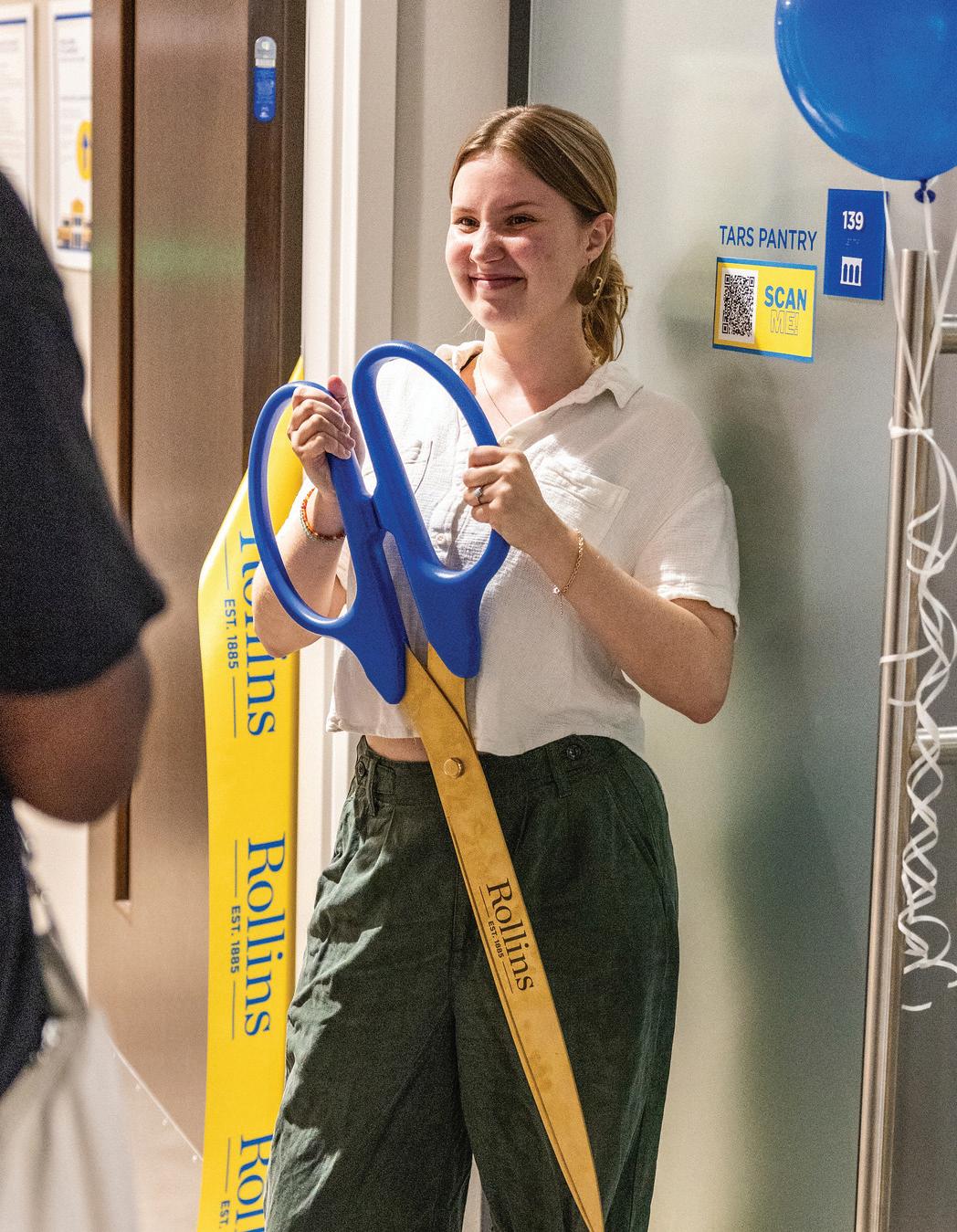

Fresh off its 10th anniversary at Rollins, the Bonner Leaders Program is a national initiative that provides servicelearning, leadership, and social justice opportunities to students who seek to alleviate social issues and find ways to work for change throughout their careers.
Developed by the Bonner Foundation—a national philanthropic charity based in Princeton, New Jersey, with the mission to “transform students, communities, and campuses through service”—the program has expanded to a nationwide network of over 70 colleges and universities.
The four-year program chooses eight to 12 first-year students—typically with previous community service experience—to form a Bonner Leader cohort before the start of each fall semester. Each member receives a $3,000 yearly scholarship from Rollins. Those selected for the program undertake a variety of community-based learning and service projects with local nonprofits and are empowered to address some of the greatest challenges of our time—from health care to access to clean water.
“Being a Bonner Leader fits right into the liberal arts ethos, with experiences outside the classroom that enhance learning,” says Meredith Hein, director of Rollins’ Center for Leadership & Community Engagement. “The goal of both the Bonner Leaders Program and service learning is to give students some of the tools to face problems, work with a team, resolve conflict, and become an active participating member of a community. These are practical experiences preparing students for when they leave Rollins.”
Art history major Sophie Foster ’24 has learned how to be a leader, gaining confidence through sustainably growing and supporting the Rollins community as president of the Tars Pantry. The pantry—which is facilitated by the Student Support Foundation—expanded this past February to
“Doing service with a unified group of like-minded people makes you more motivated and optimistic, and it brings together perspectives that create sustainable and impactful solutions to problems. ”
Sophie Foster ’24 | Art History Major
provide free access to everything from perishable and nonperishable food to hygiene products, business attire, and school essentials.
“I gained confidence in my voice by leading meetings and pitching new ideas,” shares Foster. “I learned how to network with other departments and student organizations to strengthen our pantry. Doing service with a unified group of like-minded people makes you more motivated and optimistic, and it brings together perspectives that create sustainable and impactful solutions to problems.”
Foster aims to pursue a graduate degree in contemporary art and curation while more deeply investigating the overlap between the contemporary art world and service initiatives.
Biology major and ethics minor Lillian Groves ’25 explains how the program reinforces the values of service learning and advocacy, bolstering her own passion surrounding access to health care and water resources and her goal of pursuing a career in the medical field.
In addition to volunteering at AdventHealth with recreational therapists in stroke recovery, Groves has participated in two impactful experiences during her Summer of Service, which all Bonner Leaders are required to complete between their first and third year. Groves first joined chemistry professor Pedro Bernal’s long-standing field study in the Dominican Republic, testing water samples, assembling water filters, and distributing them throughout communities around Santiago.
Back in her hometown of Bowling Green, Kentucky, Groves worked alongside a hydrology professor at Western Kentucky University to test water samples and design filtration systems to provide rural Amish communities with clean water.
“One of my key takeaways from the Bonner Leaders Program is that passion fuels action,” says Groves. “I believe that being a Bonner Leader has shaped my path by instilling a servant-minded leadership and learning style.”

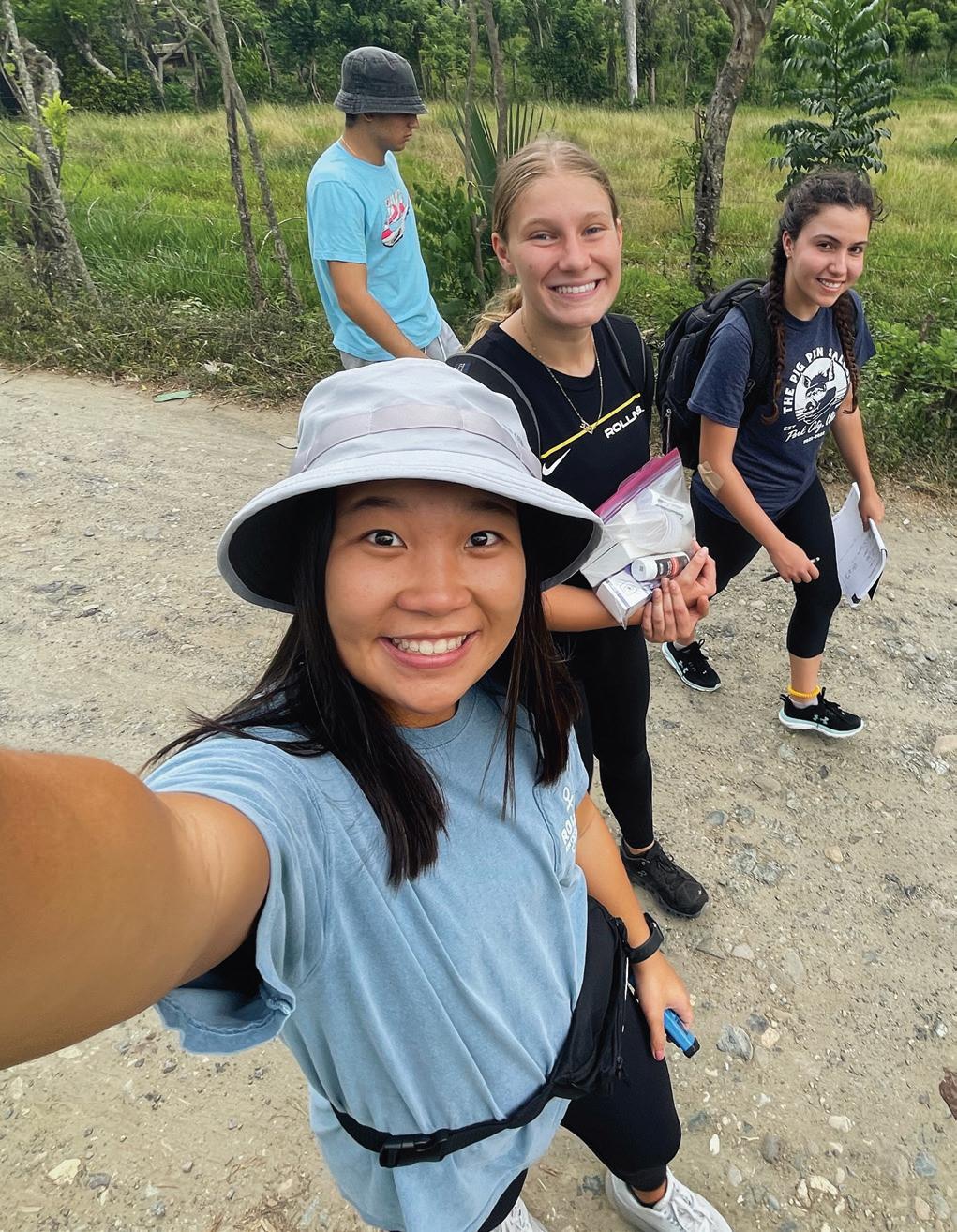
“I was able to apply what I was learning at Rollins to serve disadvantaged communities. Bridging the gap between education and application has allowed me to understand the impact of service learning. ”
Lillian Groves ’25 | Biology Major

Before Sam Sadeh ’18 was working as a learning designer at Columbia University, where he’s merging technology and education to creative positive change, he was discovering his passions for computer science and service at Rollins.
As a Bonner Leader, Sadeh founded an after-school coding program for fourth-graders at a pair of Title I schools in Orlando. The program earned a highly competitive grant through Google’s igniteCS initiative, which helps college students make a difference in their communities through computer science mentorship and funds only about a dozen projects each year nationwide.
“I work in the edtech space now, and the Bonner Leaders Program helped me cultivate my passion for
“The Bonner Leaders Program introduced me to social justice concepts and frameworks that help with how I navigate the world. ”
Sam Sadeh ’18
Learning Designer | Columbia University
education,” says Sadeh, who received a master’s of education from Harvard after graduating from Rollins. “I volunteered for four years within the Orange County Public School System in a variety of different roles that all helped me see firsthand how transformative a personalized and comprehensive educational experience can be. The same holds true for the people I met through the Bonner Leaders Program who helped me grow and develop my passion for building community and serving others.”
A double major in anthropology and religious studies, Jacqueline Bengtson ’22 specifically chose to attend Rollins because of the Bonner Leaders Program and credits her time in the cohort for giving her insight into what it really takes to make a difference in the greater community.

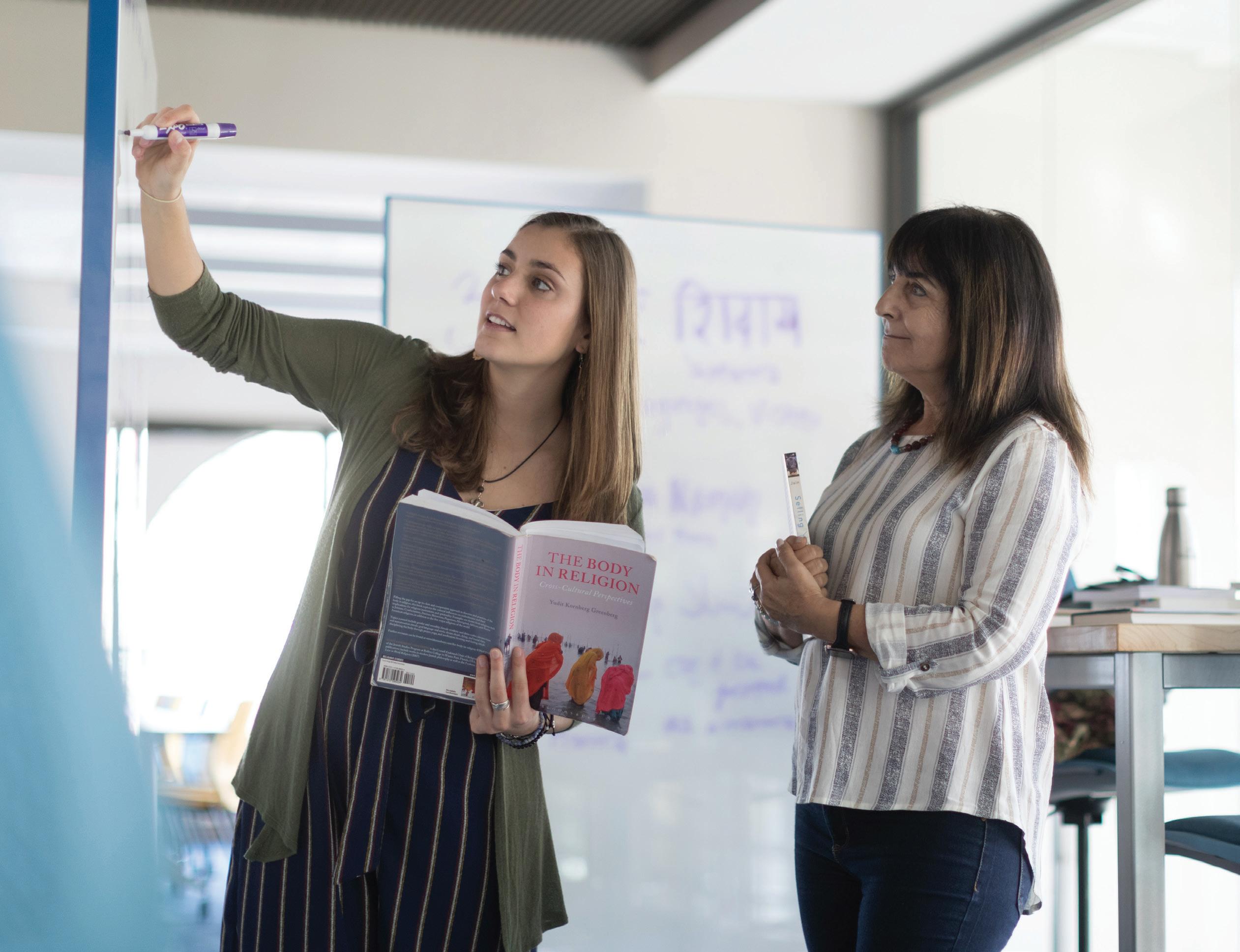
“
The Bonner Leaders Program supported my ability to foster community and cross-cultural understanding. ”
Jacqueline Bengtson ’22
Family Support Specialist | Refugees Northwest
“From partnering with local organizations and working together with my Bonner peers to enact positive change on campus, the Bonner Leaders Program taught me the power of collaboration and cooperation in the pursuit of social justice and advocacy,” she says.
Fluent in Arabic, Sanskrit, and Nepali, Bengtson recently completed two prestigious scholarship programs in India, studying Urdu in Lucknow on a Critical Language Scholarship and teaching English in Nepal as part of a Fulbright Scholarship.
“The Bonner Leaders Program supported my ability to foster community and cross-cultural understanding among my students, their families, and community members while on my Fulbright assignment,” shares Bengtson, who now
works as a family support specialist for Refugees Northwest, where she supports unaccompanied refugee minors in the Seattle area as they develop new skills, gain citizenship, and build meaningful connections.
“During my time in the Bonner Leaders Program, I grew in my ability to compassionately listen, continuing to unlearn biases and constantly ask how I can help,” says Bengtson. “Such skills are imperative when working with vulnerable populations like I do in my current role. Most importantly, I wasn’t just a Bonner Leader during my undergraduate degree; I will uphold the values of the Bonner Leaders Program throughout my life, whatever community I am in, and I will continue to find service opportunities to give back.”
By Laura J. Cole ’04 ’08MLS | Photo by Scott Cook ’24MBA
Tiffany Jones ’16 knew she wanted to change careers but was nervous about returning to college. Fast-forward eight years, and she’s now thriving in her dream career at Google.
At 24, Tiffany Jones ’16 was married with a toddler and five years into a career as a surgical technologist that she didn’t love and couldn’t see any options for advancing in. She wanted a change, but the prospect seemed daunting.
“The idea of starting over after having earned a technical degree in my field and having a career was overwhelming,” she says. “I wanted to pursue international business because I thought I could make a difference and still be in a role of helping people, but we had work and bills and our son.”
She decided to try anyway and enrolled at Valencia College. Three years later, she had earned an associate degree, but not before giving birth to her second child. A few months later, she started an international affairs degree through Rollins’ Professional Advancement programs at the Hamilton Holt School, which she had selected because of its reputation, flexible evening courses, and small class sizes.
“I grew up thinking Rollins was a pipe dream for me,” says Jones, who is now a strategy and business operations program manager at Google in Atlanta. “But the advertising as an educational option for working adults spoke to me.”
Rollins’ small class sizes and personalized attention benefited Jones significantly as she forged relationships with classmates who were on similar journeys and professors who knew what she was going through, giving her the confidence to finish her degree.
At Rollins, Jones took full advantage of the available opportunities. She participated in a work-study with the Office of Social Innovation (now the Social Impact Hub), where she helped organize the College’s first sustainability fashion show, and she interned with the American Lung Association, Clean the World, and Northrop Grumman, an experience that introduced her to a path that would become her career.
“My manager at Northrop Grumman said having Rollins on my resume helped separate me from the other candidates and helped me land the internship, which became a permanent position,” says Jones. “She was the one who
suggested I consider being a compliance officer, which combines international business—dealing with international regulations—and government defense contracting, something I never even dreamed of doing.”
Jones ended up working at Northrop Grumman for seven years. She earned three promotions and advanced to a senior principal international trade compliance analyst before landing her first role at Google as an export compliance manager and then moving into operations. While at Northrop Grumman, she had the opportunity to work with government officials from around the world and directly apply the lessons she learned in her major, which included understanding terrorism and cultural awareness.
“Working in defense contracting, with the U.S. government and foreign government relations and policies—all of my classes came full circle for me,” she says. “Even today at Google, I work with people in China, Brazil, Europe—all over the world—on optimizing operational efficiency. Understanding cultural empathy is critical, and I see people making mistakes in that realm every day. Because of the education I received, I feel confident in navigating cultural and political sensitivities.”
Rollins’ Professional Advancement programs gave Jones a flexible, affordable path to a high-quality degree. Nearly a decade later, she sees the cost as an investment in herself—one that she says is paying dividends.
“When you look at where I am now—working for Google—and where I was when I changed careers, it’s life-changing,” says Jones. “My salary far exceeds my student loans, but also the experiences I had at Rollins and the caliber of education I received that led me here are unmatched—and invaluable. My children got to see their mom fulfill her dreams, and my daughter thinks it’s so cool that I work for Google, even if she doesn’t understand what I do. She’s proud of me, and I know I’ve opened doors for her she might not have otherwise.”

Your gifts to the Hamilton Holt School help students like Tiffany realize their dreams of finishing a bachelor’s degree and transforming their professional and personal paths. Support scholarships at the Hamilton Holt School by making a gift at rollins.college/give.
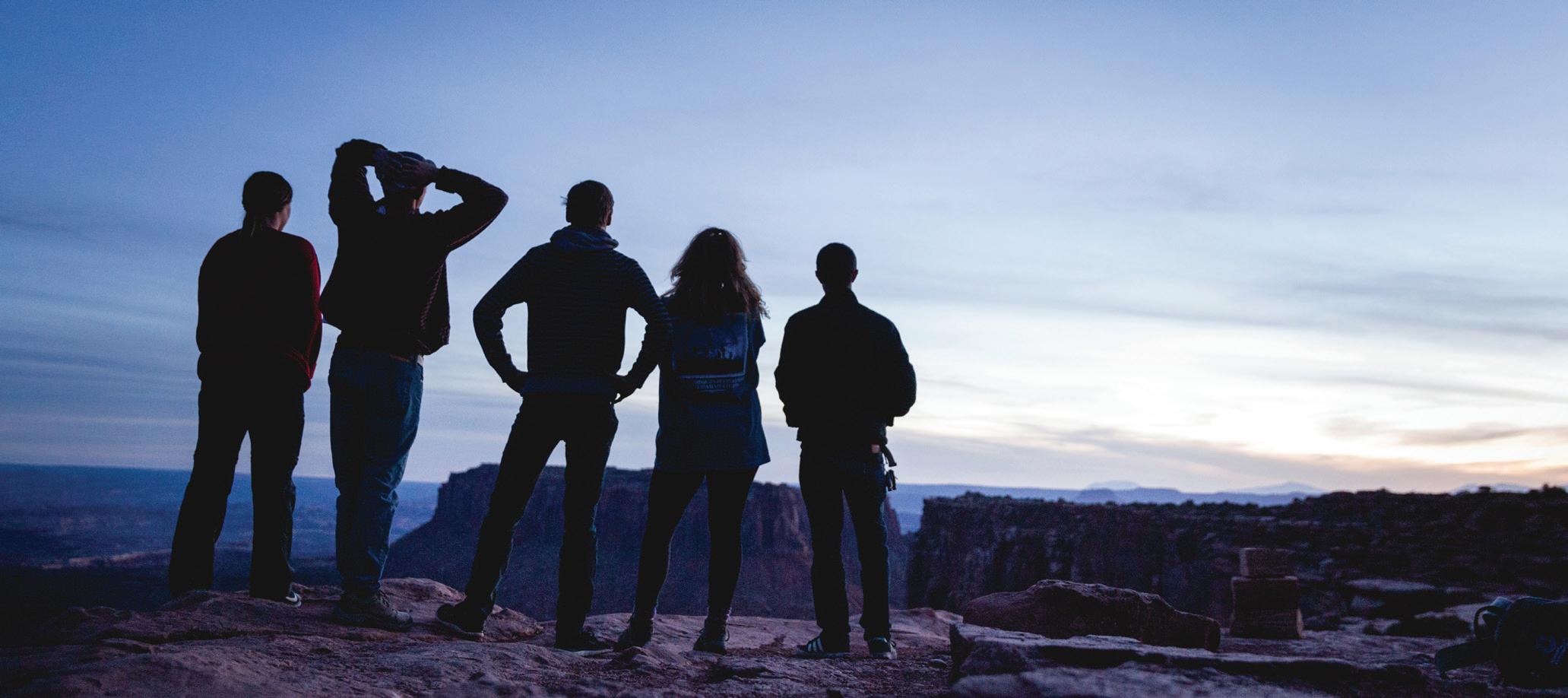
Travel writers. Cultural experts. Destination doyens. Rollins faculty, staff, students, and alumni are global citizens with keen insights into the world around us. From where to go to how to get the most out of your travel experience, your next journey starts here.
By Laura J. Cole ’04 ’08MLS
Kelsey Glennon ’12 can pinpoint the experience that forever changed her. It was during her time at Rollins while spending a semester abroad in Costa Rica, where she studied Spanish.
One weekend, she decided she wanted to visit a remote village to see indigenous pottery and meet the artisans. At the time, Google Maps wasn’t available in her location. There wasn’t a clear bus schedule or a group to tag along with, so she had to rely on herself.
“It was my first time in a foreign country on my own,” she says. “It was a pivotal point when I had to figure things out, even when unexpected things happened. That stepping out on my own in a foreign country and culture was key to building my confidence, sparking curiosity, and feeling at home in a global world.”
Glennon has since traveled extensively, often as a solo traveler, to more than 50 countries. She’s turned the confidence she gained in Costa Rica and the skills she honed as an English major into a career as a freelance travel writer and photographer for outlets like Condé Nast Traveler, Travel + Leisure, and a range of hotel brands.
Fostering global citizens like Glennon is part of Rollins’ DNA. Rollins welcomed its first international students in 1897. The College announced the Foreign Study Plan, which allowed students to spend six months in France at no extra cost, in 1938. In the 1950s, Rollins opened the first language lab in Florida and offered a study tour of Cuba. By 2005, the College expanded an opportunity to study abroad, funding international experiences for faculty to bring diverse perspectives to the classroom.
Today, 75 percent of students travel abroad through the more than 90 programs available each year, regularly garnering Rollins a spot among the top 10 universities in the nation for the percentage of students who study abroad.
It’s no wonder then that so many faculty, staff, and alumni are true citizens of the world with expertise across all dimensions of travel. To help plan your next vacation, we asked more than a dozen Tars to share their insights on everything from where to travel to what to consider while doing it. Bon voyage!
Environmental studies
professor Barry Allen has led at least 50 field studies to Costa Rica over the past almost 30 years, showing students firsthand how a country’s focus on environmental conservation can define its economy and culture.
“The Monteverde area is home to a reserve complex of over 100,000 acres, including the world-famous Monteverde Cloud Forest Reserve, Santa Elena Cloud Forest Reserve, the Children’s Eternal Rainforest, and Arenal Volcano National Park.”
“Monteverde is one of the few places in the Western Hemisphere where you can visit cloud forests safely and comfortably. You’re at the very top of a mountain range surrounded by over 750 species of trees, 400-plus types of orchids, and 400 or so species of birds. You can see things here you can’t see

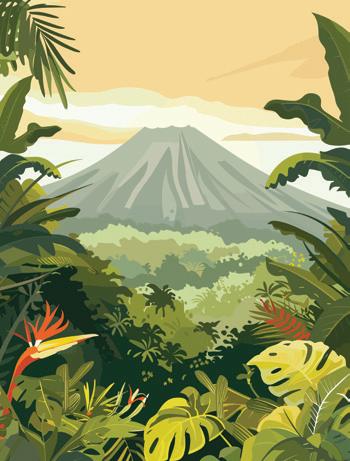
anywhere else, such as the resplendent quetzal, which is just a spectacular bird.”
“Hike the 1,000 or so feet down from Santa Elena Cloud Forest Reserve to the rustic biological station run by the Monteverde Conservation League. There’s not much electricity and no hot water, but they provide all your meals, the views are incredible, and it’s a good home base for exploring the Children’s Eternal Rainforest. Hire a good guide. Many of the local guides have degrees in biology and have gone through a training course that the Costa Rican government provides for natural history guides.”
“Build in extra time to get around and don’t drive at night. The roads are better than they used to be, but there are still a lot of switchbacks with steep cliffs on either side. A lot of roads have one-lane bridges, so caution is paramount.”

Giselda Beaudin, Rollins’ director of international programs, evaluates destinations and creates study abroad experiences for students. Explore her top tips for getting the most out of your travels.
Do your research. “Listen to local music on Spotify, watch some shows or movies from the country, do a search for the place in your favorite news source, listen to a podcast related to the place. Having some basic etiquette and a few phrases in the local language makes a big difference in how you are received and perceived.”
Dive deeper. “Include activities that go beyond typical tourist activities, such as visiting local businesses and organizations, engaging with local experts, and going behind the scenes at sites or cultural events. Cooking classes, dance lessons, and scavenger hunts force you to engage in a different way and encourage conversation and connection with others.”
Go where the locals are. “Try to stay a little outside the most central areas, where you can discover local cafes and shops. I love to spend time walking, observing, and asking locals questions about themselves and the place.”
Nearly 100 Tars have had the opportunity to study, teach, and conduct research abroad as part of the Fulbright Program, the U.S. government’s premier international educational exchange program. We asked a few Fulbright Students to share their top takeaways from living, learning, and working in another country.

Be flexible and embrace an open, willing, and positive mindset. Kindness and friendliness go a long way. Educate yourself—and then never stop learning from experience.
— Katie Pearce ’19
Fulbright assignment: Earning a master’s in creative writing from the University of Glasgow
Now: Living in Scotland and working as a content manager for BJS Academy, an online educational resource for surgeons

It’s so important to keep in mind why you are where you are. This thinking is keeping me grounded and helping me fully appreciate every detail of being immersed in another culture.
—
Socorro
Torres Lopez ’23
Fulbright assignment: Currently pursuing a master’s in Mexico-U.S. studies at the Universidad Nacional Autónoma de México

” “ ” ” “ “
Commit to the experience. There’s always a temptation to retreat to what’s comfortable, such as mingling only with expat groups or English speakers. If you commit, you will not regret it.
— Ryan Lambert ’13
Fulbright assignment: Teaching English in Hamburg, Germany
Now: Head of engineering at Dispatch, an e-commerce company located in Chicago


For 25 years, Spanish professor Alberto PrietoCalixto has led one of the nation’s oldest study abroad programs, Verano Español, a six-week summer program in Madrid hosted by Rollins that blends culture, history, and language instruction.
“Madrid has it all. Rich culture and top-notch museums like Reina Sofía and Museo Nacional del Prado. Spectacular wine, beer, and food. And the perfect weather— it usually doesn’t get extremely hot or cold.”
“Unlike with more popular European cities such as Barcelona, Paris, and Rome that are consistently flooded by tourists, the people in Madrid tend to receive tourists with a friendliness that other places in Europe don’t.”
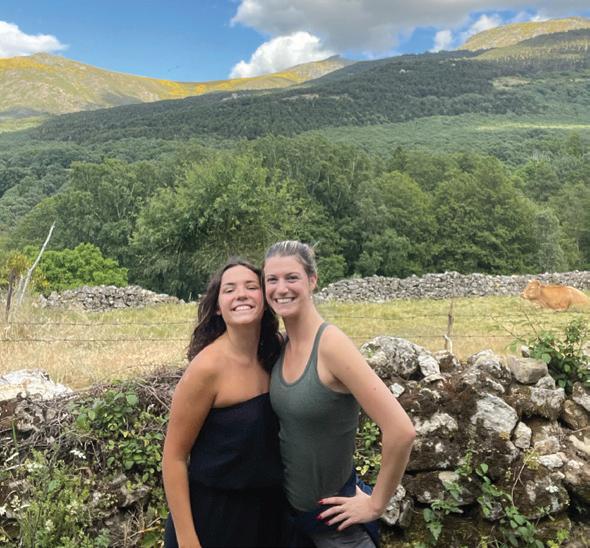
Don’t Miss
“I love taking students to Madrid Rio, a park along the river that was once the worst part of town but that the city has now turned into something beautiful for the community. It’s a great lesson in transforming urban spaces. Also, be sure to try the tapas. Unlike in America, the tapas culture in Spain is all about barhopping. You go from bar to bar having a small drink, such as wine or a caña, and different tapas. The local specialty is a calamari sandwich, which you should eat on the spot because they’re freshly fried.”
“Be aware of the impact you have on the locals. Massive tourism is causing their cost of living to go up, meaning tourists can afford to pay for things that locals can’t. Spending money can infuse capital into a country, but it can also have massive implications, which we’re already seeing in Greece and parts of Spain.”
Lily Heaton ’08 moved to Amsterdam in 2009 and is now a freelance writer and photographer who writes about the city—and beyond—for Lonely Planet, Fodor’s, and Tripadvisor.
“Amsterdam is the most adorably quaint city full of historic charm. From the wobbly little cookie houses to the canals and bridges with lights, it really feels like you’re walking through a little snow globe.”
“From now until October 27, 2025, Amsterdam will be celebrating the city’s 750th birthday. Amsterdam was founded as a small fishing village, and the name Amestelledamme was first recorded when Count Floris V of Holland granted the people living near the Amstel dam a toll privilege on October 27, 1275. The jubilee year will include 200


activities, including musicals and theater performances, special exhibitions, and photography projects.”
Don’t Miss “Walk through the Jordaan neighborhood. It’s full of cool markets, cafes, historic canals, and lovely architectural details. And be sure to visit the Museum of the Canals. It’s set inside a historic house and teaches you about the commerce, bureaucracy, and history behind how the city was shaped as well as the original purpose of the canals, which was to transport goods from Centraal Station.”
“Don’t feel obligated to tip. It’s included in workers’ wages, and the service you receive is not going to warrant it. Also, the Dutch have a saying: doe maar gewoon, dan doe je al gek genoeg. It translates to, ‘just be normal—that’s crazy enough.’ It means don’t stand out.”

The author of several books—including Climate Travels: How Ecotourism Changes Mindsets and Motivates Action—political science professor Michael Gunter shares his advice on how to travel more sustainably.
1. 2.
Leave the car behind. “Everything we do has a carbon footprint, but how we travel once we get to our location can lighten it. Traveling around on foot or bike, or using public transit like trains and buses, can make a big difference.”
Pack lighter and stay longer. “As Americans, we tend to overpack and take short vacations, but less weight in our luggage means fewer carbon emissions, and spending more time in one place likely means you’re taking fewer trips and booking fewer flights. Both have the added advantage of letting you experience a place like a local.”
3.
Bring back the lessons you learn. “Since I’ve been at Rollins, I’ve spent time on seven continents and in over 30 countries. It’s taught me to appreciate urban planning and walkable design, using public transit, and buying food every 24 or 48 hours, so what I’m eating is fresh instead of processed.”


Kelsey Glennon ’12 has visited more than 50 countries and is a freelance writer and photographer for Travel + Leisure, Condé Nast Traveler, and Time Out Global, among others.
“The word I would use to describe places like West Cork, the Dingle Peninsula, the Beara Peninsula, Connemara, and Donegal is wild. They call it the Wild Atlantic Way because that’s what it is: wild and raw and rugged. It’s where the Atlantic crashes into land, and it hasn’t changed much in a very long time, with rocky cliffs, beautiful beaches, and rolling hills.”
“There is a homogenization of travel and culture that has happened as a result of Instagram and TikTok. Algorithms reward likability, and who doesn’t want to have an Aperol spritz by the sea? I think that makes it even more necessary to visit places off the beaten path. It does require renting a car, but visiting Western Ireland allows you to become quickly embedded in the local culture and get an actual taste of what it’s like

to live there in a way that I think is hard with popularized places, particularly in Europe.”
“Stay in an Irish landmark and help preserve these old buildings. The Irish Landmark Trust lets you search lighthouses, castles, and schoolhouses for accommodations. When it comes to food in Ireland, it’s all about highlighting the purveyors, and Ireland has some of the best beef and dairy in all of Europe. You should also go wild swimming, which is really popular. There’s a big community that goes out for a quick swim in the cold Atlantic every day, even in winter. Then you can hop into one of the little saunas that’s right on the beach.”
“All of the Gaeltacht, or Irish-speaking, regions are located in Western Ireland. A lot of people travel to Ireland and never hear Gaeilge, even though it’s one of the world’s oldest written languages, and you can only hear it here. I recommend going out of your way to find a pub where people are talking back and forth in it. It’s like listening to lost poetry, and you get to take home an auditory souvenir.”
Anthropology professor Rachel Newcomb has authored several books on Morocco, where she lived for 18 months during graduate school and now returns regularly to visit family and lead study abroad trips with Rollins students.
“From the Sahara Desert to the beautiful beaches to ancient cities, Morocco has it all. It’s an exciting, vibrant, chaotic place where you’ll find different kinds of people and animals, tall skyscrapers, ancient buildings, carts pulled by donkeys, amazing cuisine, and lots of colors, scents, and very friendly people.”
“Marrakesh is a unique city that has a lot of different identities. It feels like a crossroads of European, Arabic, African, and indigenous Berber cultures, and it’s the perfect gateway


into Africa because you can go from the city over the Atlas mountains and you’re in the Sahara Desert. It just feels really magical, and it’s safe and affordable.”
“Go camping or skiing in the Sahara Desert. I wouldn’t recommend doing it in the middle of summer, but it’s worth paying for a camel and a guide—who will often bake bread in the sand and make a savory stew called tagine that’s made of meats and vegetables. Spending the night in the desert is an unforgettable experience.”
“Respect local customs in terms of wearing modest dress. That goes for both men and women. Women don’t have to wear head scarves or be super conservative, but most people wear loosefitting clothes, pants, or shorts and skirts that fall below the knee.”
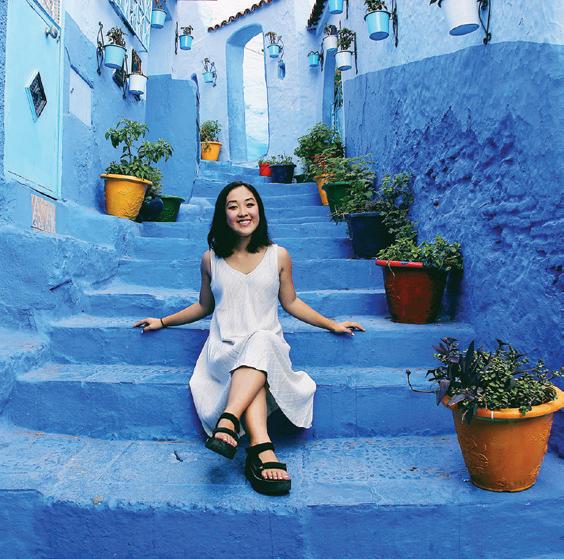
Gisela Carbonell, curator of the Rollins Museum of Art, shares three of her mustsee art museums around the globe
Teatre-Museu Dalí | Spain
“Conceptualized by Salvador Dalí himself, this museum is a surrealist space that offers a very different experience from traditional museums. Don’t miss Rainy Taxi, an outdoor installation piece by Dalí that embodies his commitment to pushing the boundaries of what art can be.”
Museo de Arte de Ponce | Puerto Rico
“This was the first museum I visited as a child, and it holds the most important collection of European art in the Caribbean. My favorite piece is Frederic Leighton’s painting Flaming June from 1895, but there are also many examples of Puerto Rican painters, such as José Campeche, that shouldn’t be missed.”
Acropolis Museum | Greece
“This one’s on my bucket list. To think that, like other ancient sites, there are substantial parts of these buildings that have survived environmental changes, wars, and looting for centuries is amazing.”

Spanish and Latin American & Caribbean studies professor Patricia Tomé highlights the must-see spots in her favorite corner of the world.
Recife, Brazil
“Northern Brazil’s most populous city has been called the Venice of Brazil because of its waterways and bridges. Rua do Bom Jesus—complete with cobblestone streets, colorful buildings, and the first synagogue in the Americas—was recently named among the most beautiful streets in the world by Architectural Digest.”

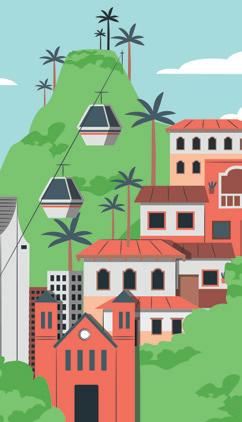
Montevideo, Uruguay
“Despite being known for having more cows than people, this small nation offers a rich and vibrant culture. It’s renowned for its delicious meats, and the country’s history, music, and natural beauty make it a must-visit destination that often flies under the radar.”
Medellín, Colombia
“It’s often unfairly associated with Pablo Escobar and its violent past, but Colombia’s secondlargest city has reinvented itself, recently earning the ‘Innovative City of the Year’ accolade from The Wall Street Journal. The hometown of celebrated artist Fernando Botero, the city now thrives with a vibrant culture and a highly efficient public transportation system.”

Havana, Cuba
“I’ve traveled to Havana over 20 times, and I’d happily go 20 more. Despite having so little, people embrace life with such a sense of purpose. Music fills the streets while children play, and the aroma of home-cooked meals permeates the air. However, Havana is not for everyone; it’s important that visitors understand the laws and regulations and educate themselves on cultural differences.”

Education professor Jie Yu grew up in nearby Zigong, China, and has led several student trips to the Middle Kingdom, including a field study over winter break.
“People have been living in this area for more than 4,000 years, making Chengdu a city full of history, culture, tradition, and delicious food. Surrounded by the Himalayas, it’s also one of the most beautiful and biodiverse places in the world.”
“Time magazine named nearby Sanxingdui Museum among the 100 extraordinary destinations to explore in 2024. Built on the edge of a 4,000-year-old civilization site, the museum is one of my favorite places to take students so they can learn about this rich history and see amazing artwork that was created thousands of years ago but looks contemporary.”


“In the city, walk through the Wide and Narrow Alleys to get a sense of the history, play mah-jongg at a local teahouse to get a better sense of the culture, and try hot pot, which was created by working-class people who found creative ways to make do with what they could afford. What I love about Chengdu is its proximity to so many amazing areas, such as Mount Qingcheng, which is considered one of the birthplaces of Taoism. Here you can explore the ancient temples that garnered it a UNESCO World Heritage Site designation and see pandas at Dujiangyan Panda Center.”
“In Sichuan, we do not have words for ‘privacy’ or ‘private space.’ We are always together, so be prepared for locals to engage in conversation and offer you suggestions.”
As an excursion director for American Cruise Lines and previous operations coordinator for Holland America, Leslie Whitted ’06 has traveled extensively around the world, including living in Alaska for six summers.
“From May through October, Ketchikan is a hopping port with cruise ships, scientific boats, and fishing boats coming and going. In many ways, it’s a microcosm of a big industrious city like Boston, but it’s easy to go hiking or fishing and get away from it all.”
“It feels like small-town America, combines rich history and Native culture, and provides a homebase for adventurous exploration of the Pacific Northwest, with a little New England menu tossed in—and surprises around every corner.”


“You can watch dances and live carvings at the Totem Heritage Center, a living history museum that has been passed down by generations of Tlingit people who still live and work there. It’s also worth signing up for a commercial crab fishing tour aboard the Aleutian Ballad , which was featured on Deadliest Catch . The guys on board will give you an inside look at what it’s really like to do this job. Afterward, treat yourself to the best seafood you’ll ever have. My favorite is a can of smoked salmon from any local shop and the halibut tacos and fish and chips at the Alaska Fish House.”
“Before you go, read up on Native Alaskan culture, so you can have a better appreciation of the people who have lived here for thousands of years.”
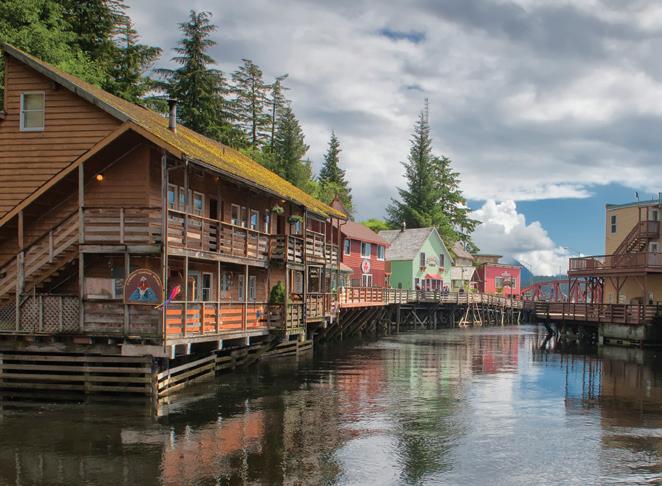
Theresa Chu-Bermudez ’11, founder and owner of Get Out! Custom Travels, always asks these five questions when helping clients plan trips.
1. 2. 3.
How much time do you have? “You don’t want to spend your vacation traveling rather than enjoying the locale. If you have less time, explore nonstop flights from your gateway.”
What is your goal? “Relaxation? Getting out of your comfort zone? Knowing your goal helps you choose the perfect experience.”
What are your priorities? “Nice amenities? A full schedule? I had a couple honeymoon in the Maldives, and a hotel gym was important because they were active.”
4. 5.
How much do you want to spend?
“It’s important to have a budget and know where you want to splurge and where you’re OK saving.”
Are you open to destination dupes?
“For example, everyone is going to Italy, but there are similar places that are less busy and a better value.”
By Adrienne Egolf | Photo by Scott Cook ’24MBA
Tony LeVecchio ’68 ’69MBA has a full and meaningful life that he says all started when he became a student at Rollins.
Tony LeVecchio ’68 ’69MBA is a passionate ambassador for Rollins. The winner of the 2024 Alumni Service Award, LeVecchio has spent countless hours advocating on behalf of the College, organizing functions and speaking to potential high school recruits. But the path wasn’t always so clear.
“I got there by accident,” he says with a chuckle. “This fella I played baseball with in high school was always talking about Rollins, and he said this is where anyone would want to go to school. And that’s how I wound up there.”
LeVecchio recalls not knowing anyone when he walked on campus as a freshman in 1964, but he says that quickly changed thanks to the small class sizes and close relationships with professors.
“I pretty much knew that my major would be something in business or finance,” he says. “My advisor was Charles Welsh, who became the first dean of the Crummer Graduate School of Business. He charted the path, and I followed.”
With courses in basic accounting and economics, LeVecchio gained the foundation he needed to start a career as well as the real-world experience that would set him apart.
“We focused on real-life situations,” he says. “Most of the professors had a real business career. You really got exposure to things you were going to do in the future. They were focused not on theory but on preparing you to work in a business environment.”
His defining moments at Rollins came through unique experiences such as interning as a financial analyst in New York City and participating in a transformative trip to Europe.
“We met with IBM and the World Bank,” he says. “We traveled to Geneva and then Basel in Switzerland. Most of us had never been to Europe before, so we gained some incredible experiences. Our curriculum and approach were ahead of their time. I’m not sure how many others got that opportunity.”
After graduating, LeVecchio’s trajectory continued to be influenced by the connections he’d made at Rollins. He laughs remembering a conversation he had with Welsh upon
graduating and interviewing for his first position: “I told him I was going to take a job at General Electric, and he said, ‘Well, that would be my second choice.’”
Thanks to that advice, LeVecchio took a sales role at an up-and-coming printer company called Xerox, where he built a resume in sales, marketing, and finance. During his tenure at Xerox—and long after—he kept up with Welsh as well as other professors he’d forged relationships with at Rollins.
Maybe that’s why—when he found himself in Dallas in 1983—it was an easy decision to become a local Rollins ambassador for alumni and potential students.
“I tried to participate in anything the College asked me to do,” he says. “It was my time to give back and say thank you.”
Alongside his impressive career—which has included stints on the boards of numerous public and private companies and eventually led to his current role as the president and owner of a financial consultancy—LeVecchio became a dedicated diplomat for Rollins. Over several decades, he helped build a community in the Dallas area with strong ties to campus, serving at times on the alumni board and later on the College’s board of trustees.
In recent years, LeVecchio has been happy to see the evolution of the Rollins student body, noting the diversity and well-roundedness he sees compared to his own time.
“I’m really impressed by the caliber of today’s students,” he says. “I’d like to think I helped bring some new students to Rollins.”
For decades now, LeVecchio has been the one always talking about Rollins, just as his baseball friend did back in high school.
“I have such positive memories of Rollins,” he says. “Of course, everyone’s definition of success is different, but I’ve been married to my wife, Donna, who I met while at Rollins, for 51 years. We have two great kids and four wonderful grandchildren. I’m very blessed with my life, and that all goes back to the foundation I received at Rollins.”
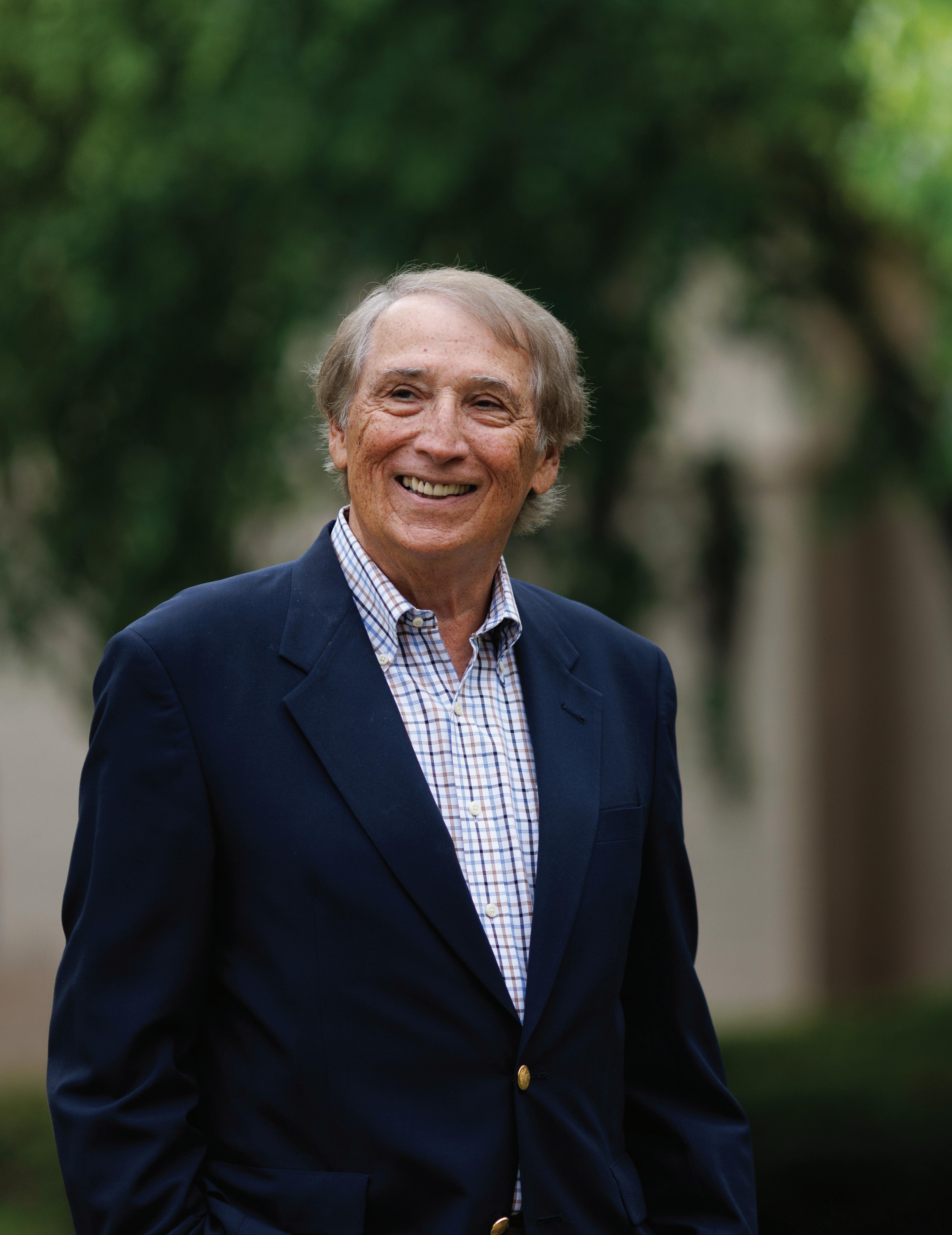
March 27-30, 2025
Reunite with your fellow Tars at the biggest, most anticipated alumni event of the year. Celebrate your Rollins spirit and our thriving community with cherished traditions and events like the Grove Party, Alumni Dinner, the 130th anniversary of Rollins Baseball, and much more.
All alumni are welcome to join the festivities.
Baseball • Women’s Soccer • Delta Zeta • Hume House Child Development & Student Research Center • Order of the Fox (Class of 1975 & prior) Class
Learn More
Scan or visit rollins.edu/alumni-weekend to explore this year’s schedule.
Join us on Giving Day 2025 and help Rollins students discover new passions, spark creativity, push limits, and make lifelong connections. With each gift, you make our students’ dreams come true.
Christy Sanford ’62 won the Arts and Letters Unclassifiable contest presented by Georgia College & State University.
C.M. Rip Cunningham ’67 released his book, Where the Acorn Falls, which discusses his experience growing up in a small suburban town in the ’50s and ’60s.
Inspired by Boyd Coffie, his late coach at Rollins, Chris Mader ’88 authored Make the Adjustment, a book focused on the keys to business leadership and success.
After spending hours on the water with bonefishing expert Stuart Cleare, Steve Farrelly ’92 has penned Bonefish Barehanded!, a guide packed with a lifetime of practical experience and lessons on bonefishing in the Bahamas.
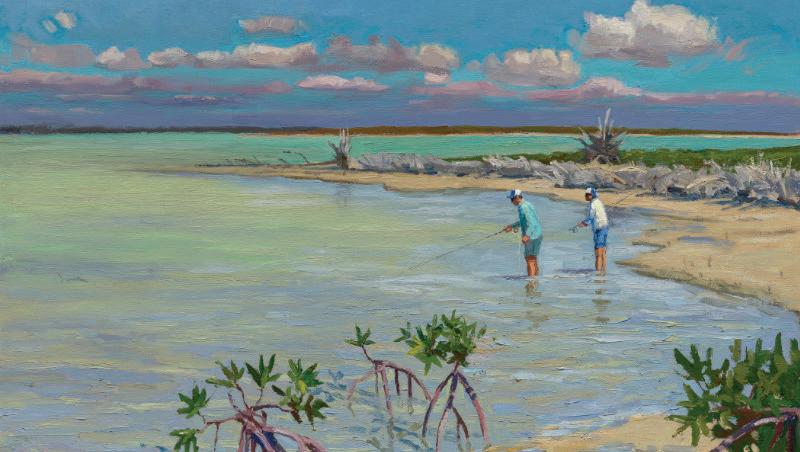
Christyne Morrell ’02 has published The Curse of the Dean Man’s Diamond, a ghost story for kids age 10 and up.
Steven Vagnini ’11MBA penned a guide to the Walt Disney Company titled Disney A to Z: The Official Encyclopedia: 6th Edition
Rebecca Charbonneau ’16 has published her first book, Mixed Signals: Alien Communication Across the Iron Curtain, a history of the collaboration between American and Soviet radio astronomers as they sought to detect evidence of extraterrestrial civilizations.
In March, Allison Furlong ’20 premiered her debut production, Fight or Flight, at the 28th Street Theatre in New York City.
Leza Harrison ’73, who learned to ski while at Rollins, won first place in the Women’s 8 slalom, trick, and overall categories at the 2024 U.S. National Water Ski Championships. She also secured the overall title at the Senior World Championships in Spain.
Courtney Reynolds ’03 was recently elected vice president of the board of directors for the Association for Commuter Transportation. She will begin her term in January 2025.
William P. Perry Jr. ’10MHR has been appointed by King Charles III to the Most Venerable Order of the Hospital of St. John of Jerusalem, a prestigious honor awarded to those who have made outstanding contributions to charity and humanitarian efforts.
This summer, Laura Hardwicke ’11 received the Outstanding Individual Award at the Central Florida Safety Summit hosted by the Florida Department of Transportation. She was also named the Outstanding Bike/Ped Advocacy Champion by Bike Walk Central Florida. Hardwicke works as the City of Orlando’s safe mobility manager, and these awards recognize her efforts to improve traffic safety.
Courtney Durbin ’16 was selected as an Education Pioneers fellow and participated in a national leadership development program that matches emerging leaders to high-impact projects. Upon completing the fellowship, Durbin transitioned into a permanent role at her placement organization, Good Reason Houston, where she serves as a research and data manager.
Niko Ellison ’21 was recently named a 2025 Legal Scholar at Google. This prestigious program pairs law students with mentor attorneys and includes a tech law summit at Google’s headquarters in Mountain View, California. Scholars also complete a 10-week summer associate position at a partner law firm and receive ongoing mentorship from Google’s legal department.


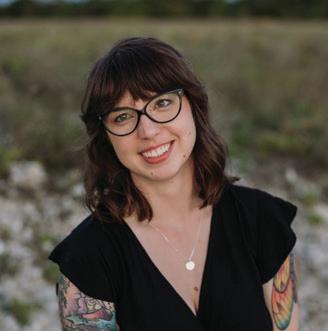


Jim Carney ’65 recently celebrated the 20th anniversary of the Gardner Carney Leadership Institute’s Leadership Lab. Founded by Carney and his family, the program consists of a six-day workshop for teachers and administrators focused on developing the leadership competencies of their students.
Susan Olson ’66 marked her 80th birthday with a celebration in Sarasota, Florida, alongside friends and family, including Patty Witt ’78 and Beth Fontes, executive director of major and planned giving at Rollins. Olson is a published author and just released her latest work, “No More,” a mystery short story.
Ginny Guerrant ’73 and her husband, Jeff, recently celebrated their 50th wedding anniversary.
Members of the X-Club fraternity from the classes of 1978 to 1983 gathered in Pinehurst, North Carolina, for a golf outing. The group included Paul Schmitt ’78, Tom Mazzei ’79, Jess Johnson ’83, Randy Carson ’80, Rick White ’80, Jon Sahn ’81, and Pete Samaha ’82
Bill Wood ’86 joined Sally Lairson ’79 and emeritus political science professor Tom Lairson for a reunion at their mountain home in Brevard, North Carolina, where they reminisced about the Rollins departments of politics, history, and philosophy from the 1980s. Attendees included retired professors Tom Cook, Charlie Edmondson, Laura Greyson, and Gary Williams.

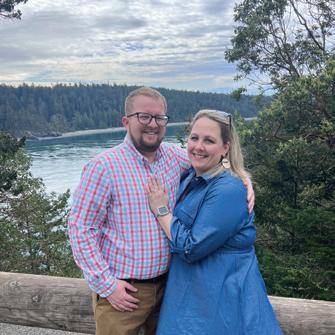
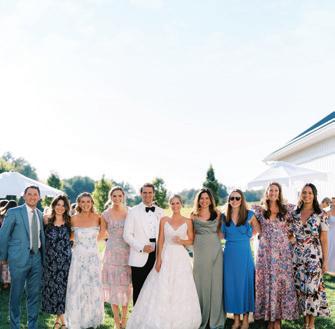


Chester Glover ’82 has retired after a 25year public service career. During his years of service, Glover worked as a district congressional caseworker for the offices of U.S. Rep. Val Demings and Rep. Corrine Brown. He also served as the district legislative assistant to Alzo J. Reddick, former state representative and former dean of student affairs at Rollins.
This past April, Monica Pettit ’12 got engaged to her fiance, Mark Fruzia.
William Lloyd Firth ’13 wed Vanessa Gabrielle Schwartz at the Church of Bethesda-by-the-Sea in Palm Beach, Florida.
Martha Watts McWilliams ’12 and Mathew McWilliams recently got married, with several alumni in attendance, including Matt Morello ’09, Lucy Samperton Morello ’11, Hillary Wise Peters ’11, Jessica Thompson ’11, Teri Edwards ’12, Sarah Lugo ’12, Molly Rooney Woodward ’12, and Kasey Sandifer Zion ’12 . The McWilliams are also expecting their first child.
This summer, John ’13 and Wendy Schafer ’13 ’14MBA welcomed the newest addition to the Schafer family—a baby girl named Elizabeth Anne Schafer, nicknamed Libby Anne.
Julie Leventhal ’17 and her husband welcomed their first son, Jonah Asher, on August 28. Leventhal, an LPGAcertified teaching professional at Dubsdread Golf Course in Orlando, shares that she can’t wait to get Jonah onto the golf course.
Path of the Panther recently won Outstanding Nature Documentary at the 2024 News and Documentary Awards Emmy Awards. Tori Linder ’14, co-founder and managing director of the Path of the Panther project, was a producer on the National Geographic documentary, while Ashley Siana ’14 served as an assistant editor and associate producer on the film. The project contributed to the passing of the Florida Wildlife Corridor Act and has helped secure more than $2 billion in state funding for land protection.
As a full-time conservationist and storyteller, I wear a lot of hats. The liberal arts education at Rollins really prepared me for that.
— Tori Linder ’14

After serving as the director of music education at Appalachian State University for the past 18 years, Suzi Mills ’84 was awarded the rank of professor emerita of music. This title recognizes her long tenure, two Fulbright scholarships, and her appointment as a senior research associate at the University of Johannesburg in South Africa.
After six years of serving as production manager for Cygnet Theatre, one of the largest theater companies in San Diego, Craig Campbell ’96 was promoted to the role of producing director.
Environmental studies grad Rex Wilmouth ’96 has been named state director of Environment Rhode Island, an organization that “works for clean air, clean water, clean energy, wildlife and open spaces, and a livable climate.”
Vanessa Blakeslee ’01 was selected to serve as a writer in the 2024 Artist-inResidence program at Acadia National Park by the U.S. Department of the Interior and the National Park Service. Blakeslee currently teaches creative writing at the University of Central Florida.
Spensyr Krebsbach ’04 was recently promoted to senior counsel, marketing and litigation at Cinch Home Services, Inc., one of the nation’s leading providers of home service solutions.

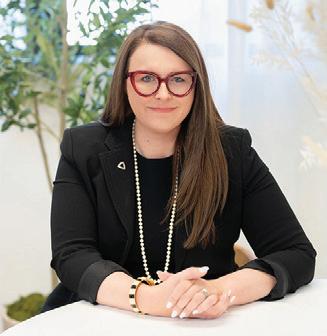
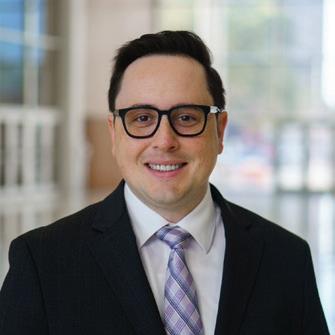
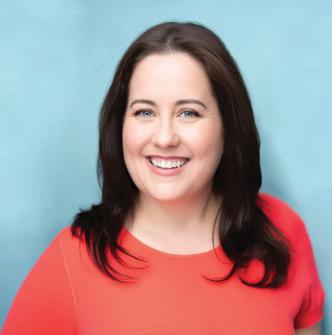
Maddie Cholnoky ’17 has always been drawn to the ocean, a passion that led her to Rollins and now to the Florida Keys National Marine Sanctuary. As the new implementation manager for Mission: Iconic Reefs—a large-scale coral restoration project led by NOAA—she combines fieldwork and data analysis to preserve the environment she is most passionate about and inspire others to do the same.
I pinch myself every day that I get to do what I love. Whether I’m on the computer analyzing data or diving underwater, I feel grateful that I have the opportunity to work in a field that inspires me.
— Maddie Cholnoky ’17
Brian Hernandez ’06 marks the first anniversary of his role as founder and chief storyteller at Phalanx Outreach Solutions, a creative marketing agency in Texas. He is also the co-founder and managing partner at Radar Hill Media, where he leads content development. Previously, Hernandez served as chief storytelling officer at Workforce Solutions Rural Capital Area, earning over 25 communications awards.
Amy Calandrino ’07, commercial real estate broker and podcast host, recently launched the Calandrino Foundation, Inc. with a mission to bridge the wealth gap and democratize financial prosperity. Based in Orlando, Florida, the foundation aims to support small businesses and inspire future entrepreneurs.
Austin Connors ’09 has taken on a new role as general manager of the Cox Business Convention Center with the Oak View Group. Connors also recently received his master’s degree in hospitality from Temple University and welcomed two children, Calvin and Darby, with his wife, Kacie.
Lizzie Taylor ’19 was accepted into a summer literature program at Exeter College, one of Oxford’s world-renowned constituent colleges. Following this experience, Taylor will pursue a master’s degree in English at Boston College.

Rollins Hall of Famer Joanna Coe ’11 was selected to play for Team USA in the 2024 Women’s PGA Cup, helping lead the team to its third consecutive victory. As a student at Rollins, Coe won the 2008 NCAA Division II National Championship and led the Tars to the team title that year. She was also a four-time All-SSC honoree and four-time WGCA Scholar All-America.
The golf program at Rollins played a crucial role in preparing me for both personal and professional success. One of my top takeaways has been the importance of self-discipline and a strong work ethic when pursuing my goals.
— Joanna Coe ’11
Marian Brown Carson ’46 May 23, 2024
Carlyle Seymour Hodges ’48 May 9, 2024
Jolie Wheeler Riggs-White ’50 June 25, 2024
Carlton C. High Jr. ’52
September 3, 2024
Ronald E. Ring ’60MBA July 23, 2024
Linda Qualls Coffie ’62 ’78MSCJ P’85 P’89MBA P’90 P’92MAT
June 11, 2024
Susan Hazard Douglass ’62 July 9, 2024
Robert M. Dunning ’62 P’93 June 20, 2024
Cornelia Thompson Northrop ’62 June 26, 2024
Alicia Leonard Pagano ’66MAT May 19, 2024
Ronald L. Renwick ’66
January 25, 2024
Kenneth L. Sparks ’66 August 1, 2024
William C. Harper ’67
May 14, 2024
Susan Orton Stewart ’68 P’95
December 7, 2023
Mary Kellogg Robinson ’75 P’07
September 23, 2024
Elaine B. Nelms ’77MAT
March 26, 2024
Leo J. Schafers ’81
December 8, 2023
Tamara L. Watkins ’81 P’12
June 26, 2024
Horace L. Beall ’82
June 12, 2024
Barbara S. Richardson ’82
March 8, 2024
Vincent E. Trunzo ’82MSM August 25, 2024
Bart R. Saunders ’86 June 3, 2024
Virginia E. Stuart ’89MA May 19, 2024
Juan Gomez-Acebo ’92 August 12, 2024
Michael J. Lyons ’93 March 3, 2024
Carolyn Hodges Jordan ’94 May 9, 2024
Edwin T. Melendez ’97 May 21, 2024
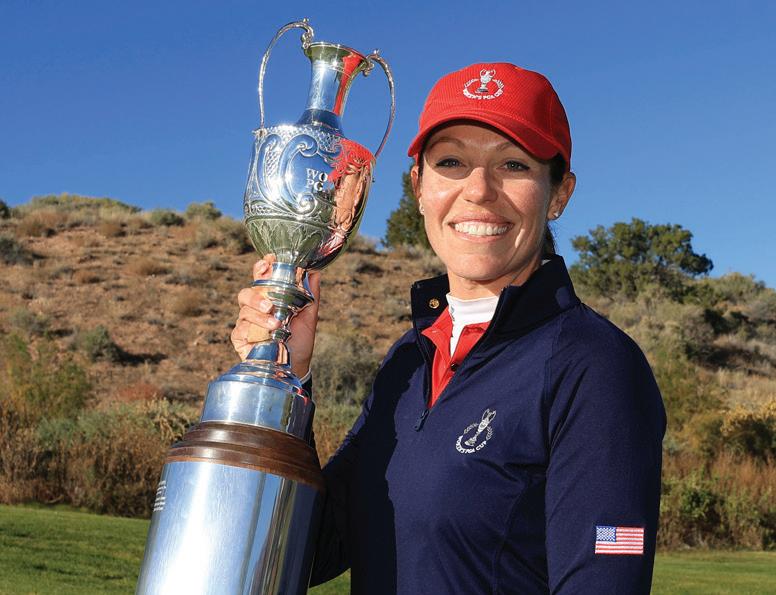
STAY IN THE KNOW
You don’t have to wait for the magazine to stay up to date with your classmates. Keep an eye out for our monthly Class News feature in the FoxFlash newsletter.
Scan here or visit rollins.college/gogreen to receive your magazine electronically. If you choose this option, you will no longer receive the print version of Rollins magazine.
HAVE NEWS TO SHARE? Visit rollins.college/classnews to fill out a class news submission form, or mail your news to: Rollins College Class News Office of Alumni Engagement 1000 Holt Ave. – 2736 Winter Park, FL 32789-4409
NEED TO UPDATE YOUR CONTACT INFORMATION?
Visit rollins.college/alumniupdate or notify us at alumni@rollins.edu or 800-799-ALUM

By Luke Woodling ’17MBA | Photo by Scott Cook ’24MBA
Sonic Automotive, the Fortune 300 company Scott Smith ’91 co-founded in 1997, is one of the largest automotive retailers in the U.S. Based in Charlotte, North Carolina, the organization operates hundreds of car and powersports dealerships across the country and employs more than 10,000 people.
Sonic, in short, is a massive operation. Yet, when Smith was CEO, he made sure every Sonic employee had his email and cell-phone number, and he encouraged them to contact him if they ever ran into an issue that he could help fix.
“I answered them all,” says Smith. “Not everyone reached out, of course, but the folks who did would tell their co-workers and friends, ‘Hey, I called Scott and he actually answered, and then he helped me with this or with that.’ Everyone starts to realize that this company and these people care about me and my success. It really helped build a culture of trust and transparency throughout the organization.”
It’s hard to imagine many executives extending such a universal offer of individualized support, but Smith sees this kind of service as the secret to his success.
“The number-one thing for me was having a mentality of service,” he says. “As a senior leader, you were always looking for those people who were selfless for the team and who were always lending a helping hand and making sure that nobody was left behind. If you want that to be a core value across a large organization, you have to model that at the top.”
We recently asked Smith—who retired as Sonic’s CEO in 2018 but still serves on the firm’s board of directors—to reflect on what he learned from spending more than two decades in leadership positions at one of the country’s most valuable companies.
Don’t let anyone say you can’t do something just because you’re young. When I was 29, I was the youngest president on the New York Stock Exchange. A lot of folks told me I couldn’t do it because I didn’t have any gray hair and wasn’t experienced enough, and yet there I was because I was the person who knew everything about the company and our business.
Spend less time tethered to your desk. That was one of the biggest leadership lessons I’ve learned during my career. I probably spent more than half of my time out in the field, and if I was in the office, I tried to spend as much time as possible talking to people, learning about their job, learning about them, and figuring out what motivates them.
Celebrate your team’s accomplishments—even the smallest victories. You’ll not only help your people develop a sense of accomplishment, but you’ll also let them know that you care about them and you want them to be successful.
Sometimes folks are going to drop the ball. You could get really angry at the person who slipped up, but what’s that going to do? Instead, I want to understand what happened and figure out how we can keep the ball from being dropped next time.
Some things are beyond our control. No matter who you are, you’re not going to be in control of everything. If you can learn to let that go and stop trying to control everything, your stress level is going to come down, and when stress goes down, communication goes up.
Try to eliminate anything that ends with an apostrophe and a “t” from your vocabulary. Shouldn’t, can’t, don’t—I’ve always tried to avoid using words like that. You’re going to run into obstacles throughout your life and career—that’s inevitable. But if you have the mentality to overcome adversity and you’re willing to work hard enough, I believe you can accomplish anything.
Never be so afraid of failure that you’re scared to try something new. To me, failure is an indication that you’re trying to move the ball forward—that you’re trying to break new ground. That’s something I’m always going to get behind even if it doesn’t always work out perfectly.
ROLLINS COLLEGE
1000 HOLT AVE. – 2747
WINTER PARK, FL 32789-4409
CHANGE SERVICE REQUESTED
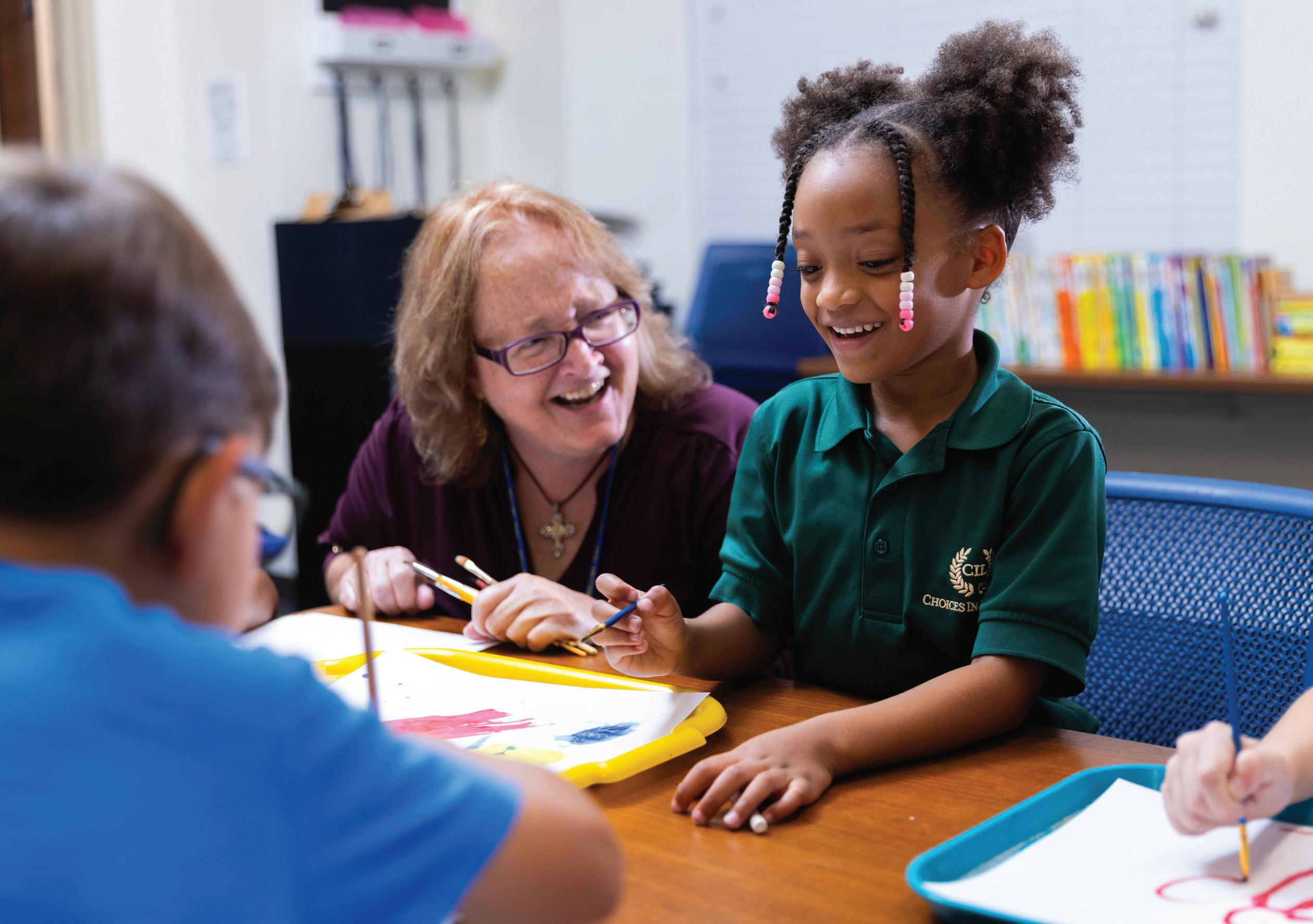
Thanks to a generous $3 million gift from the Warren and Augusta Hume Foundation, students in the Hamilton Holt School’s Professional Advancement and Graduate Studies programs now have access to childcare right on campus. Through the new Evening EduCare program, children ages 5 to 11 receive high-quality care that maximizes learning and engagement while their parents attend evening classes on campus, making it possible for more adult learners to realize their dreams of earning a Rollins degree. Learn more about the program at rollins.college/educare.